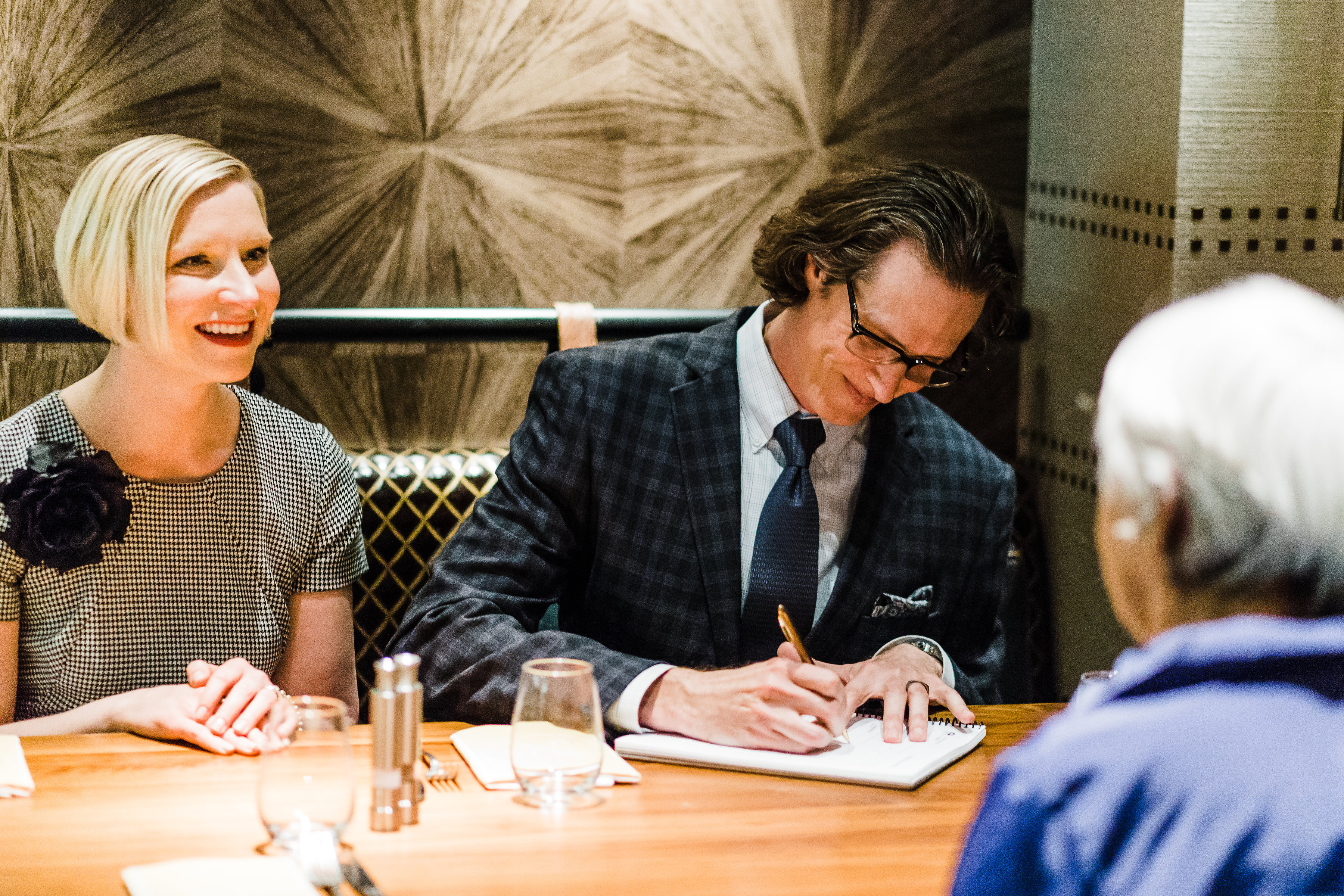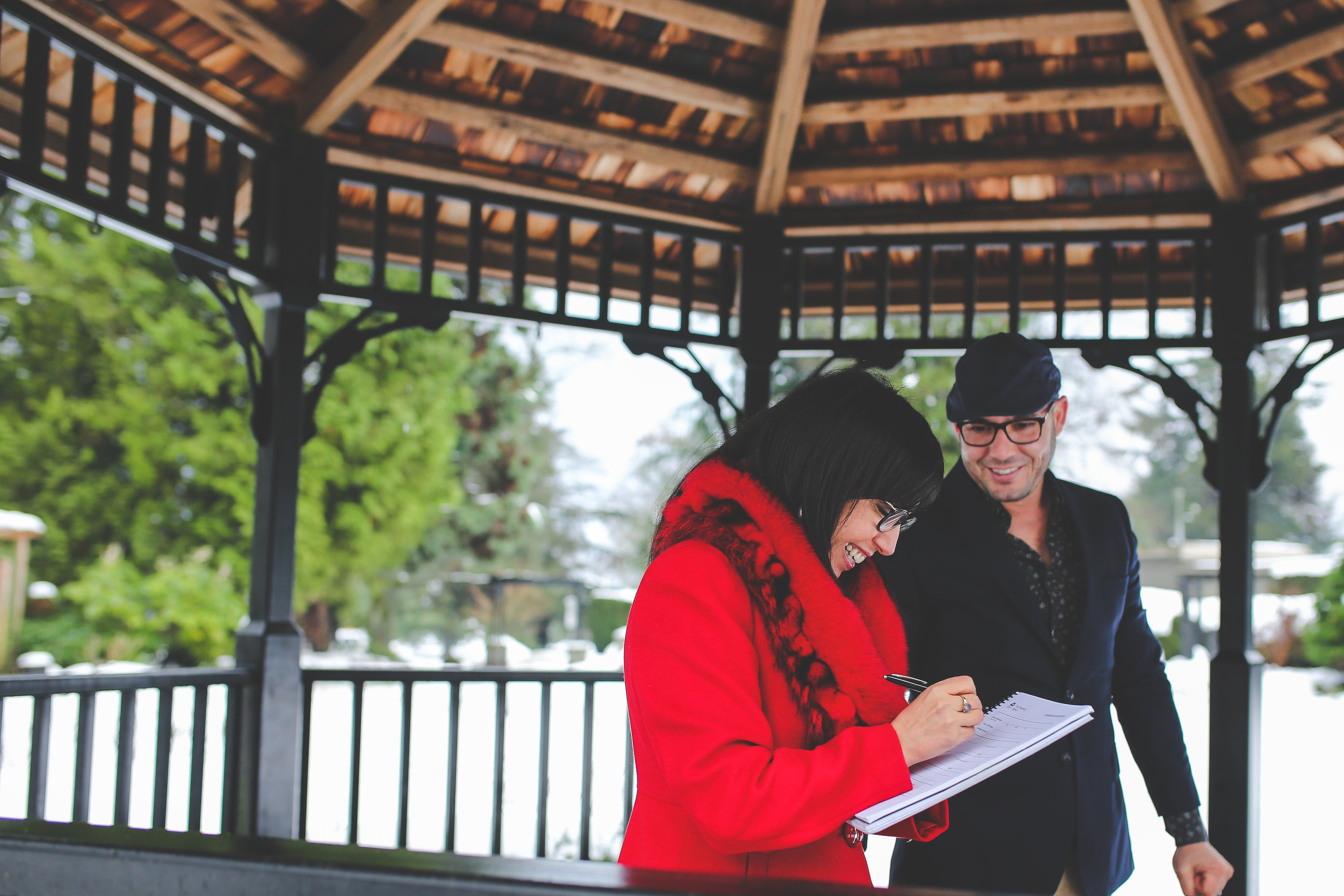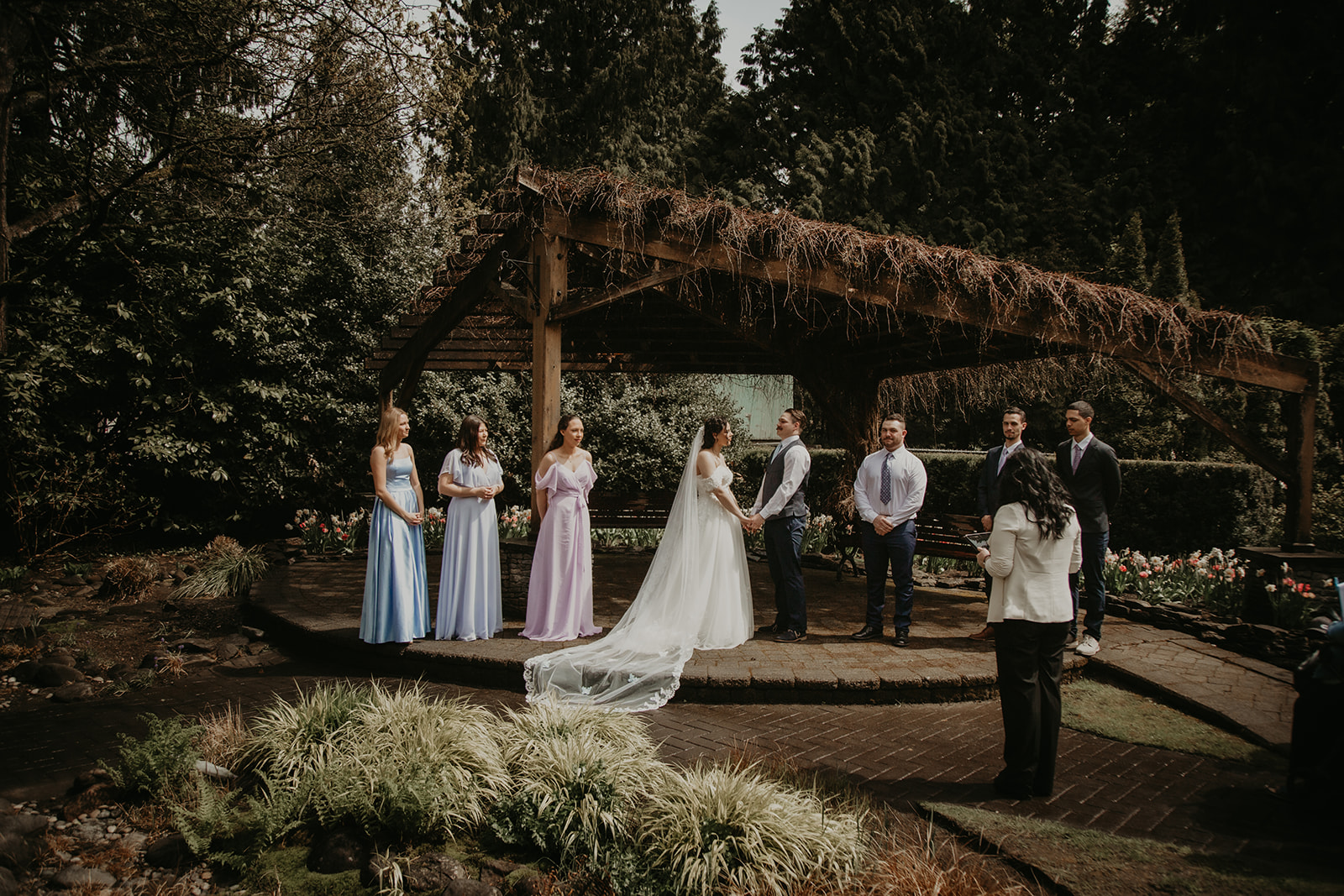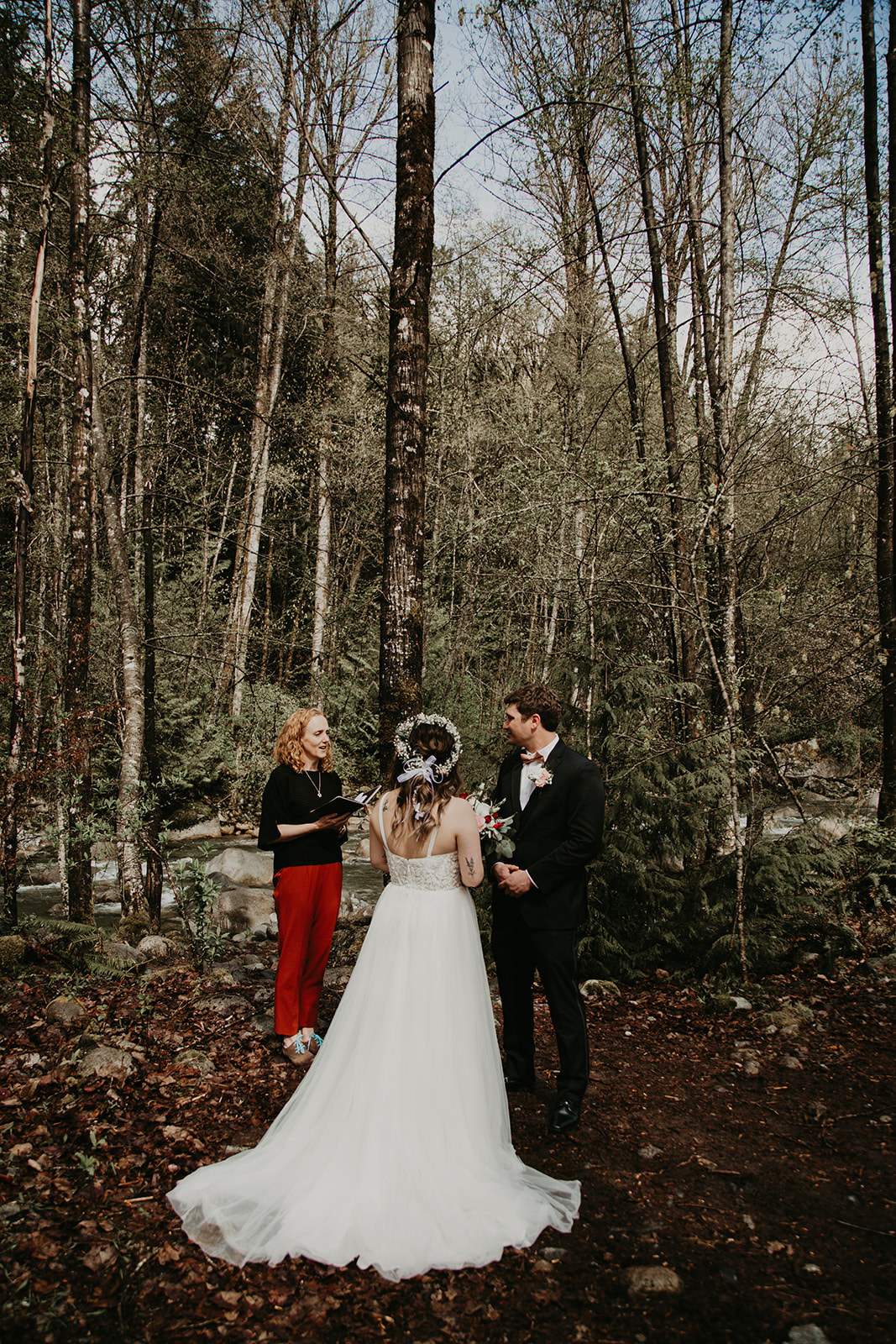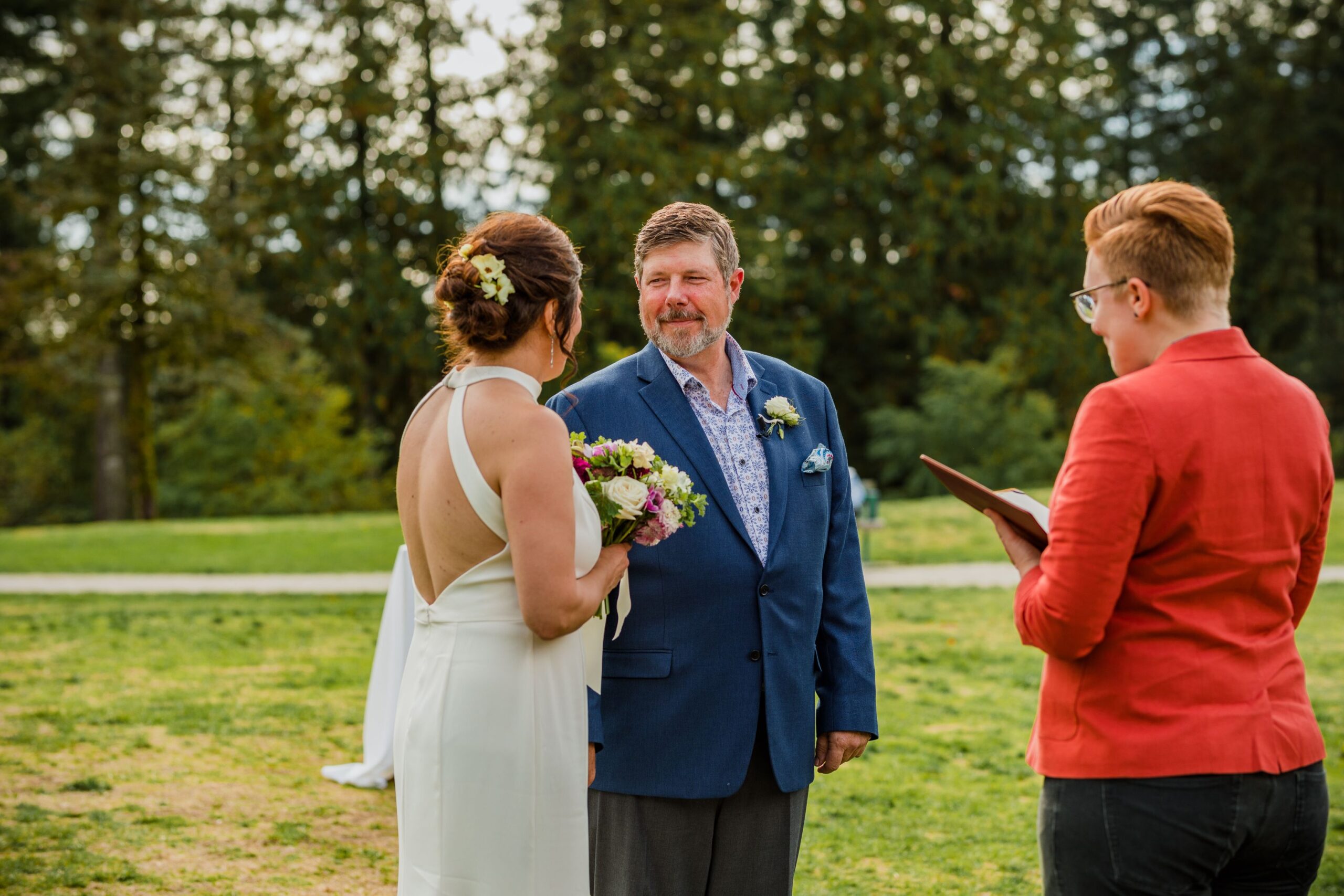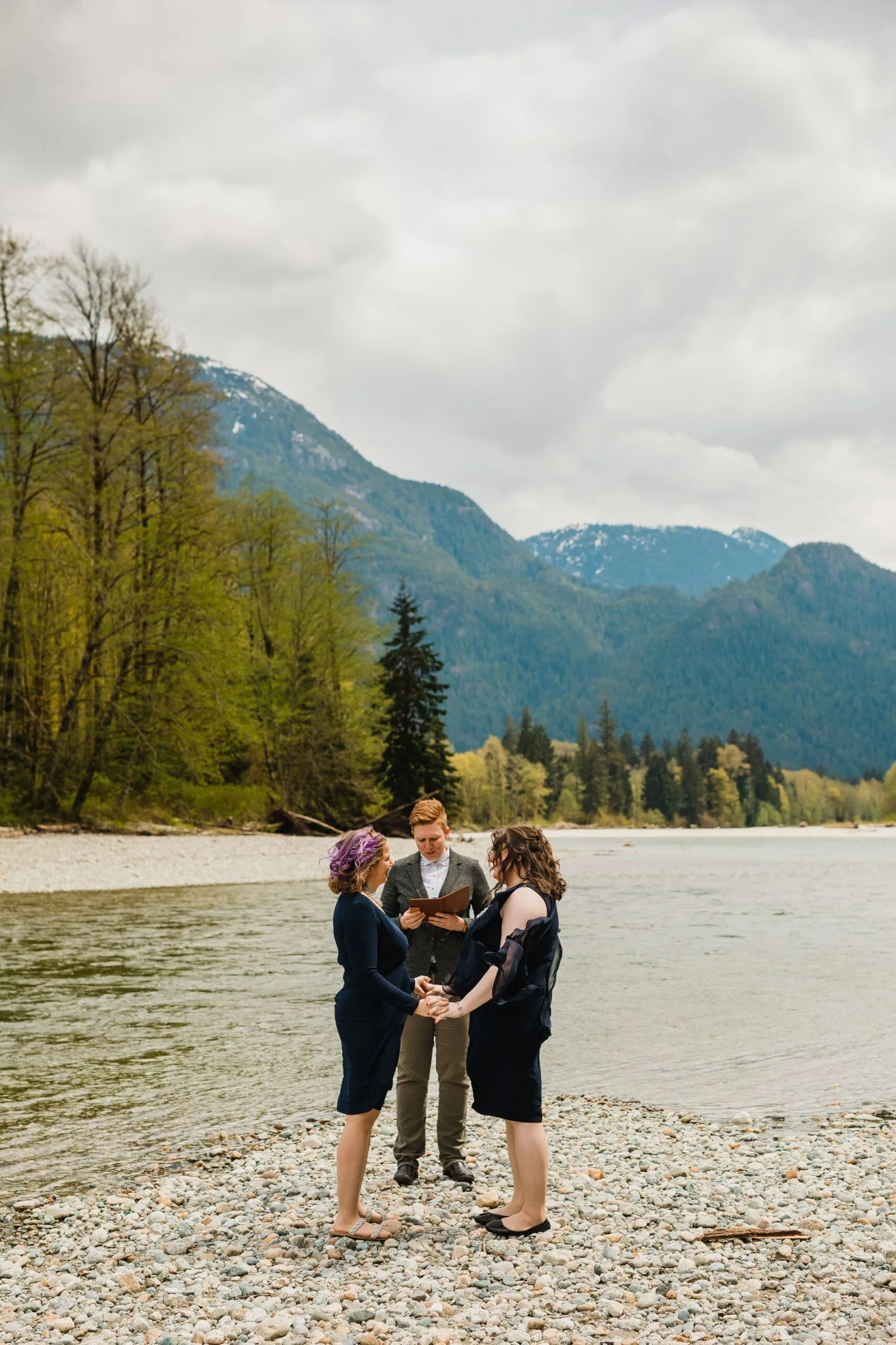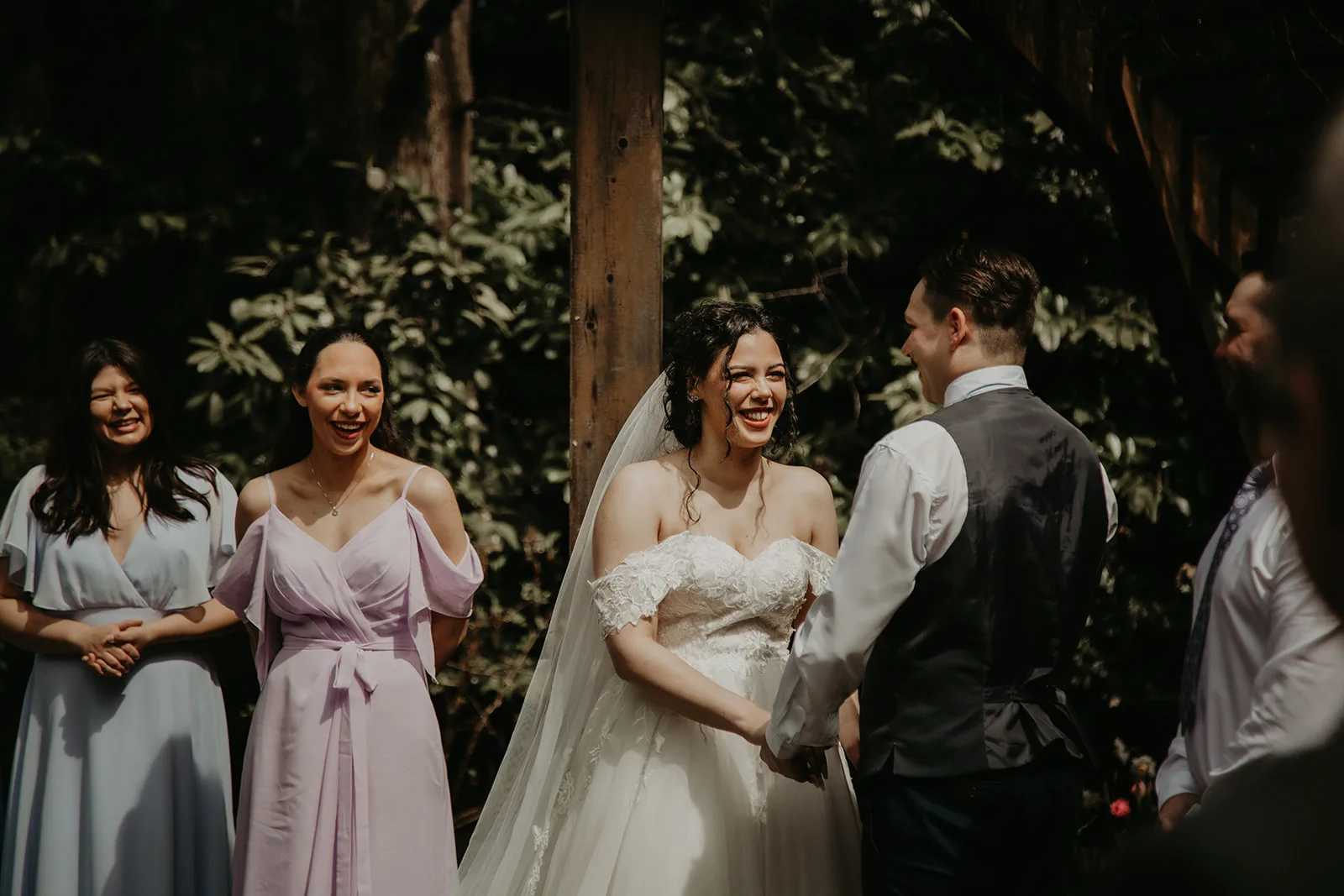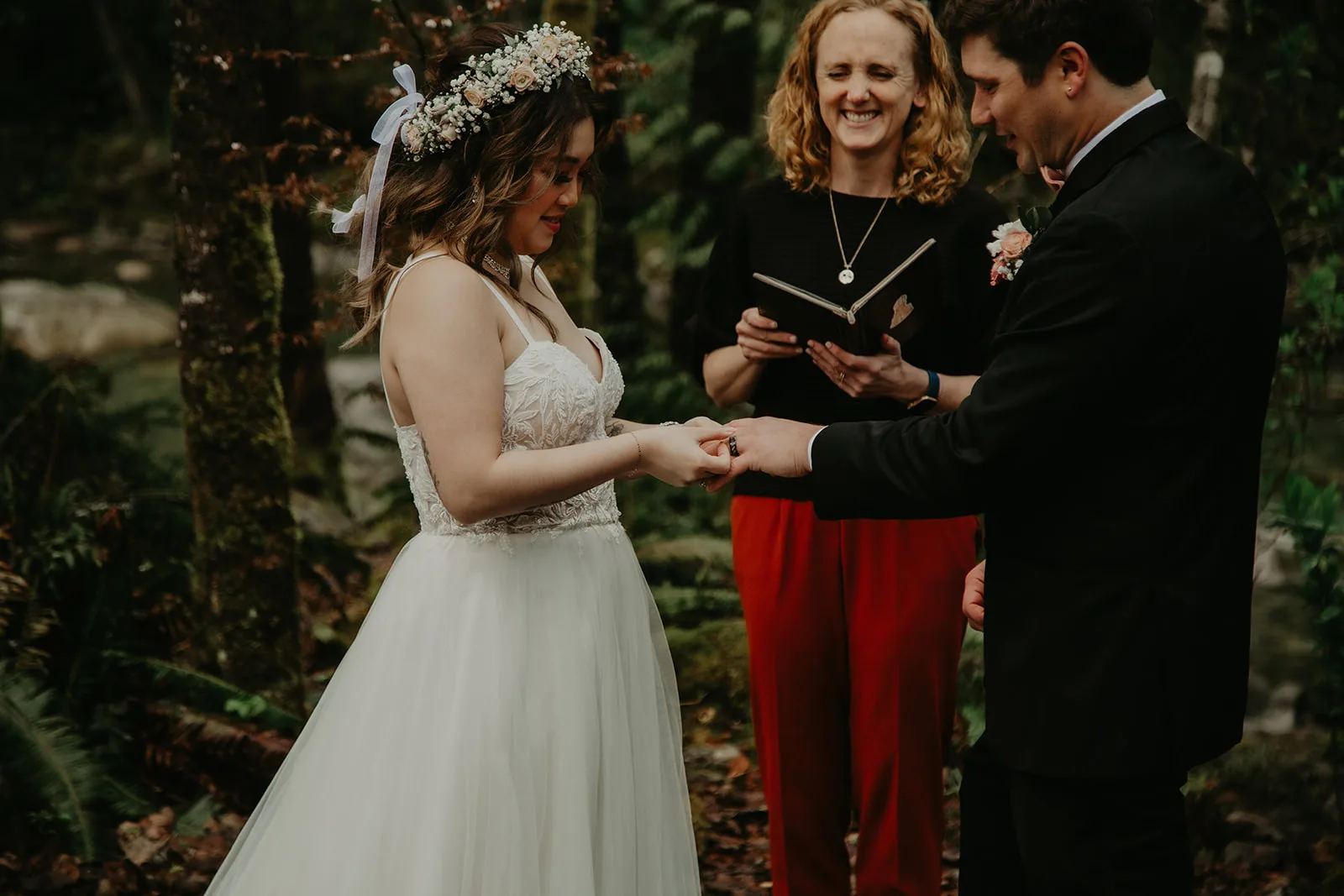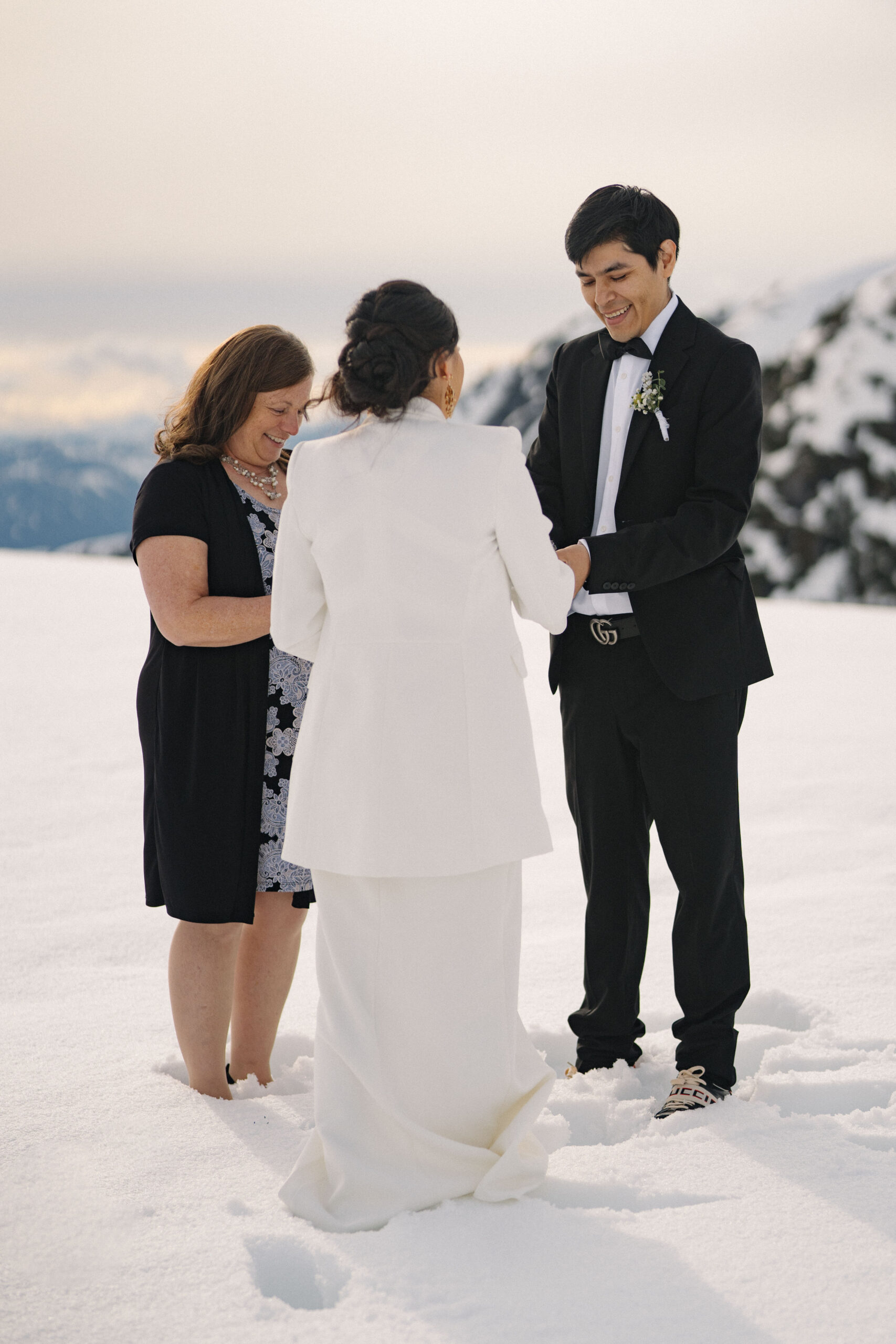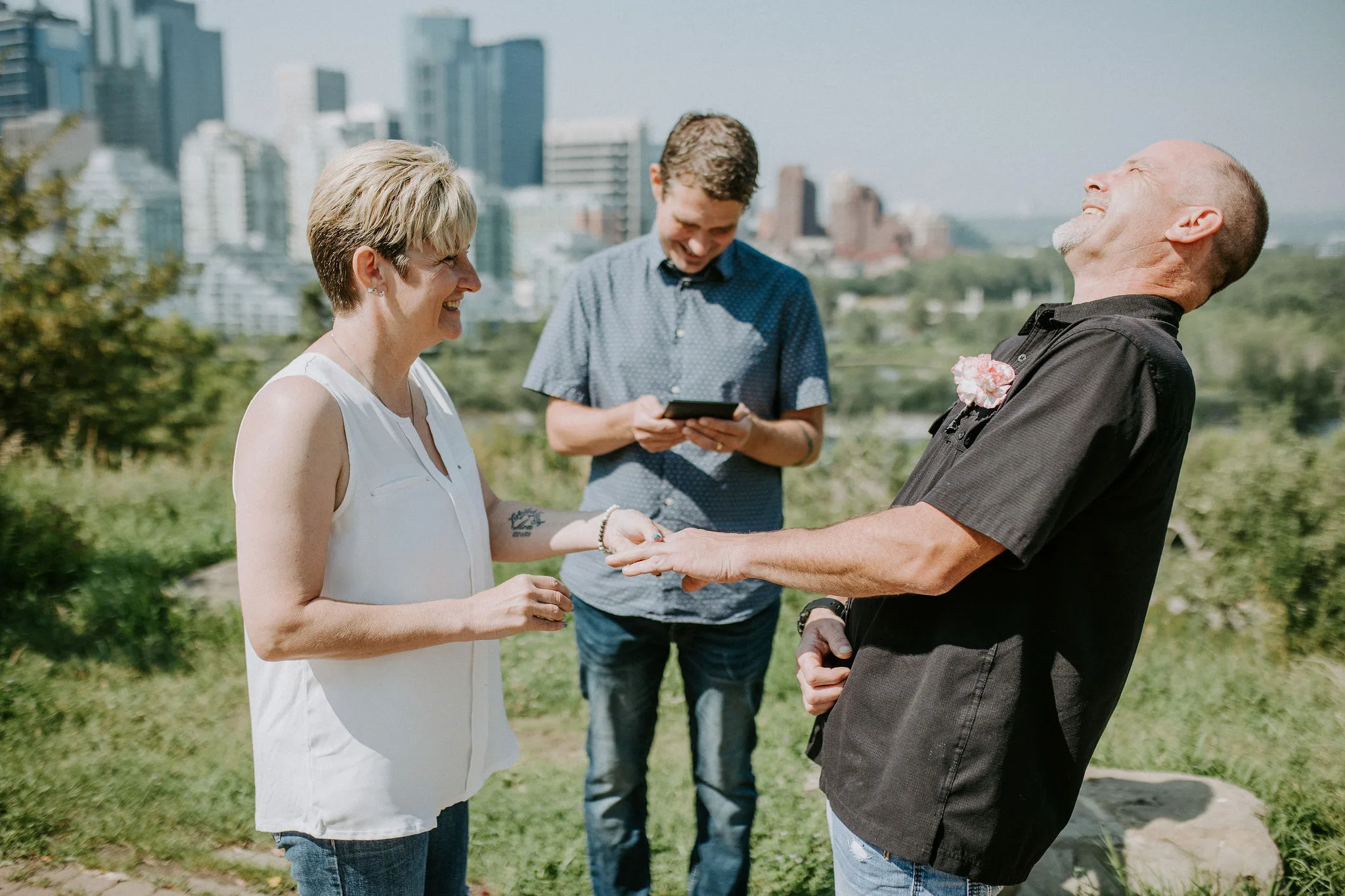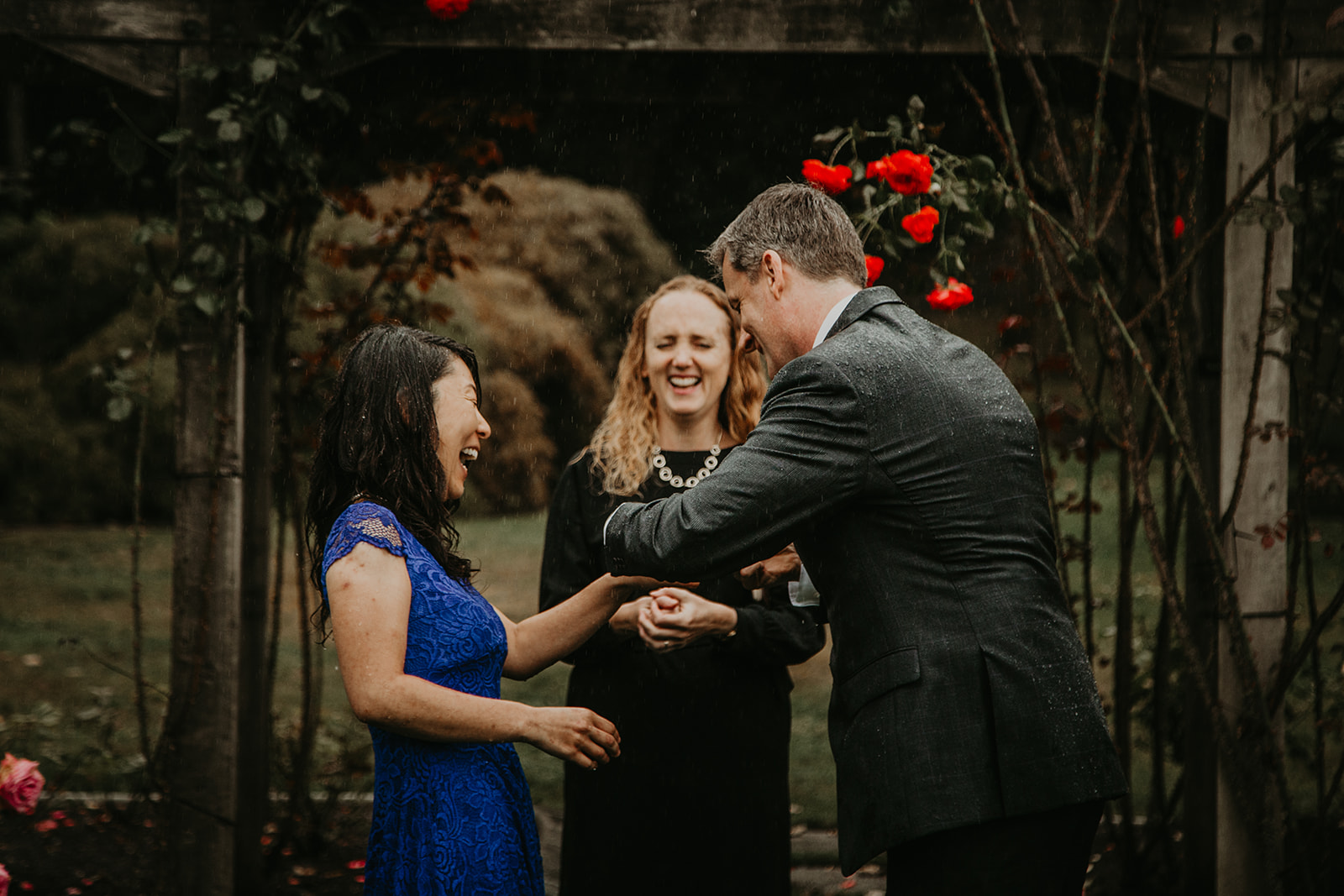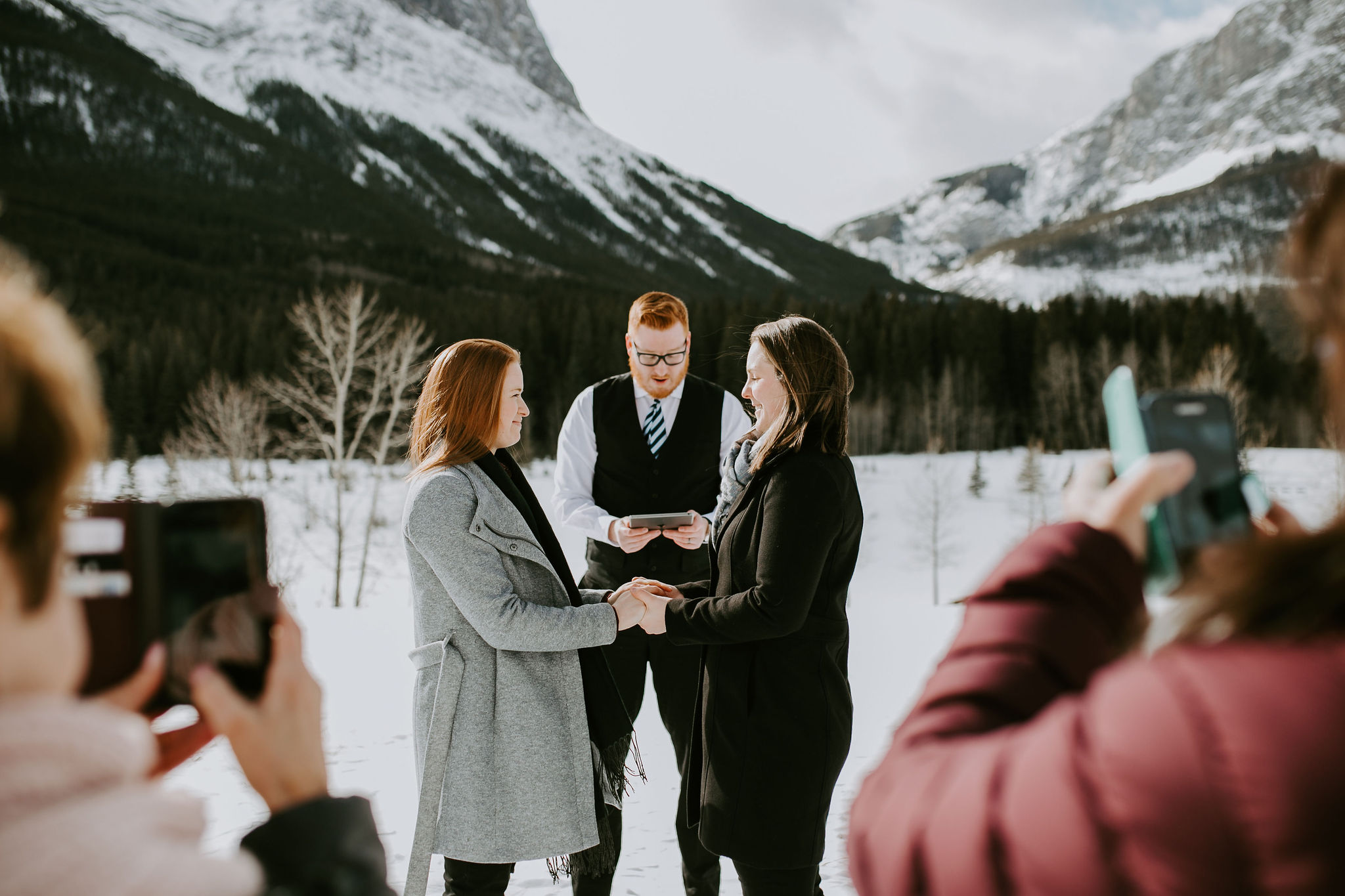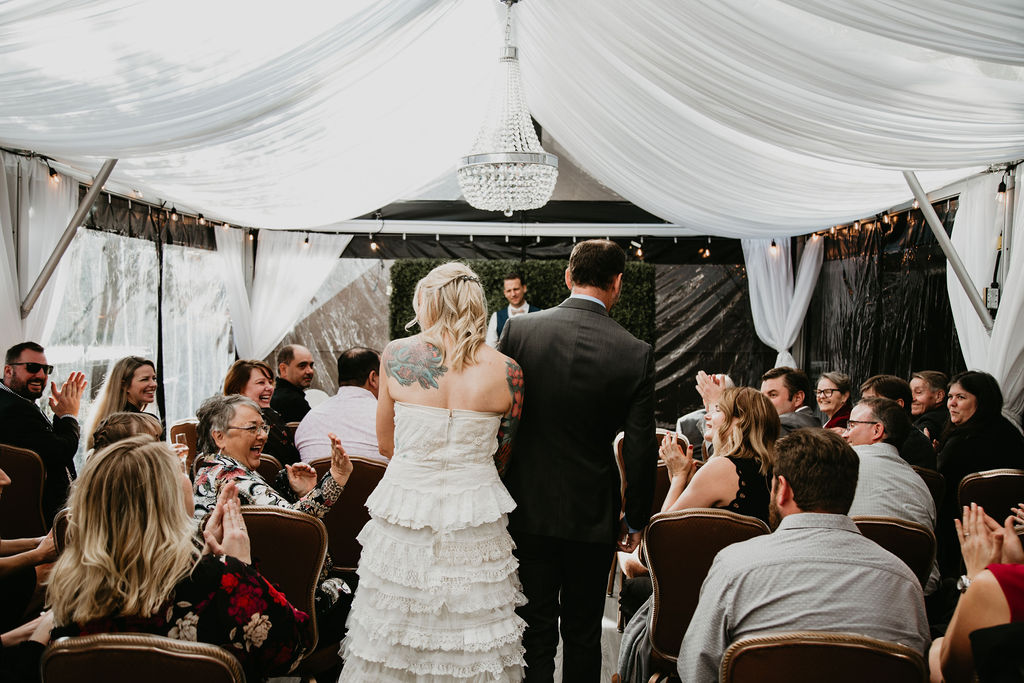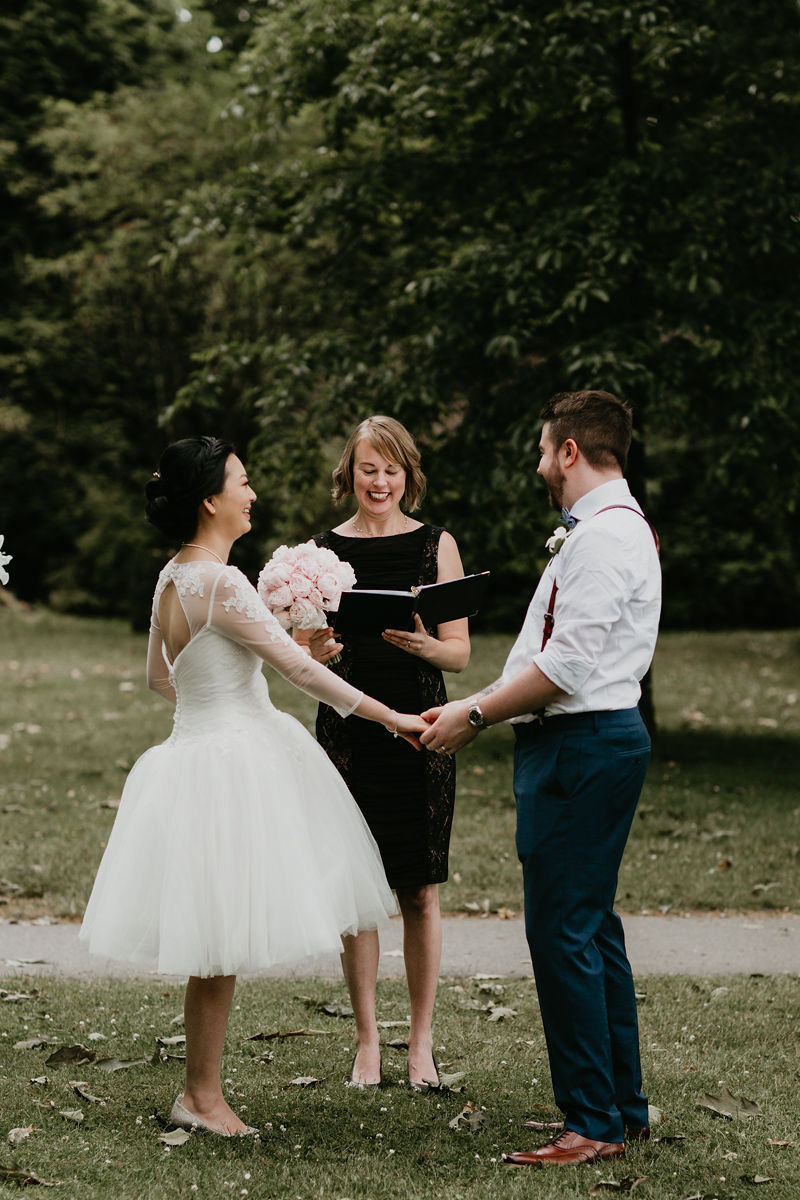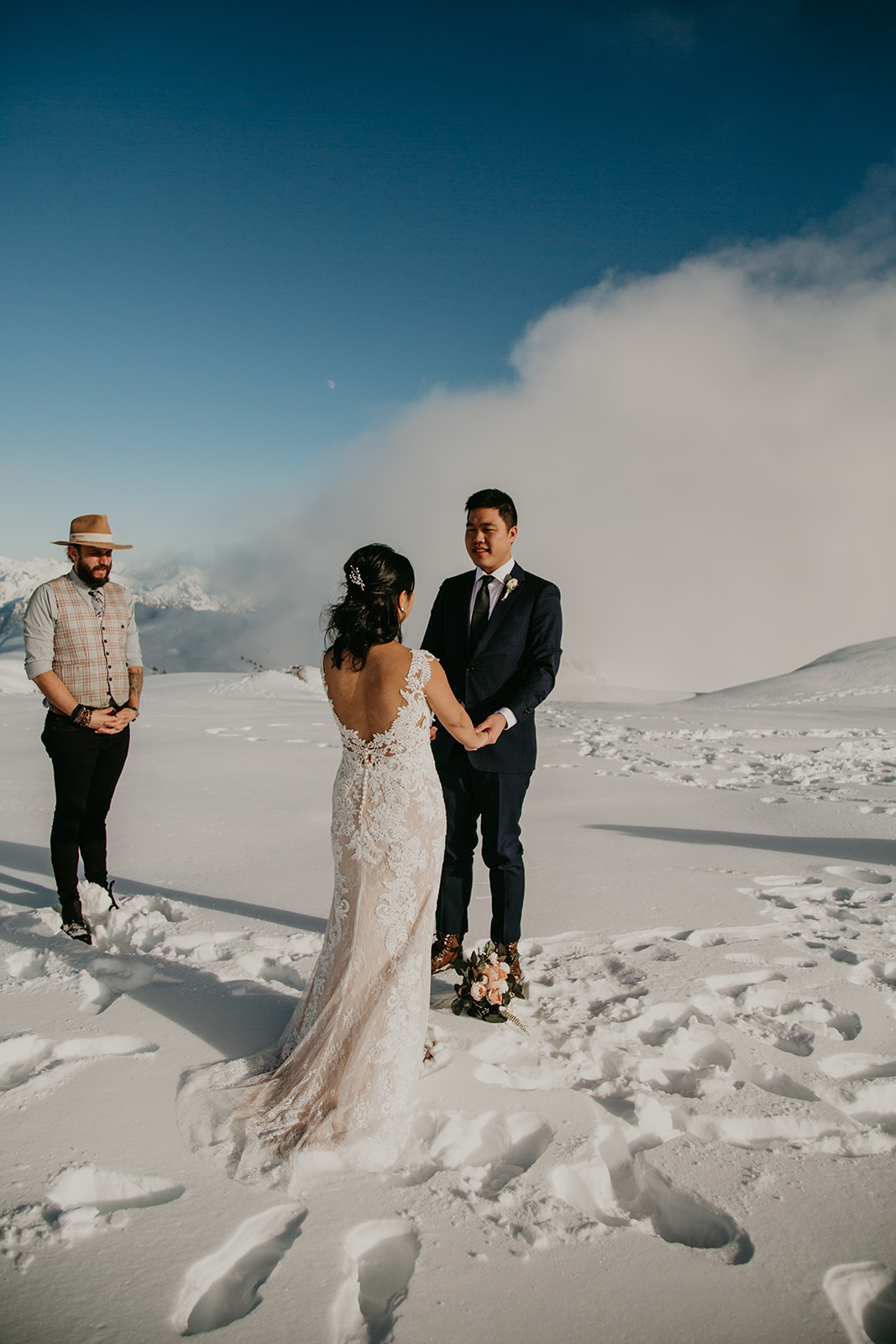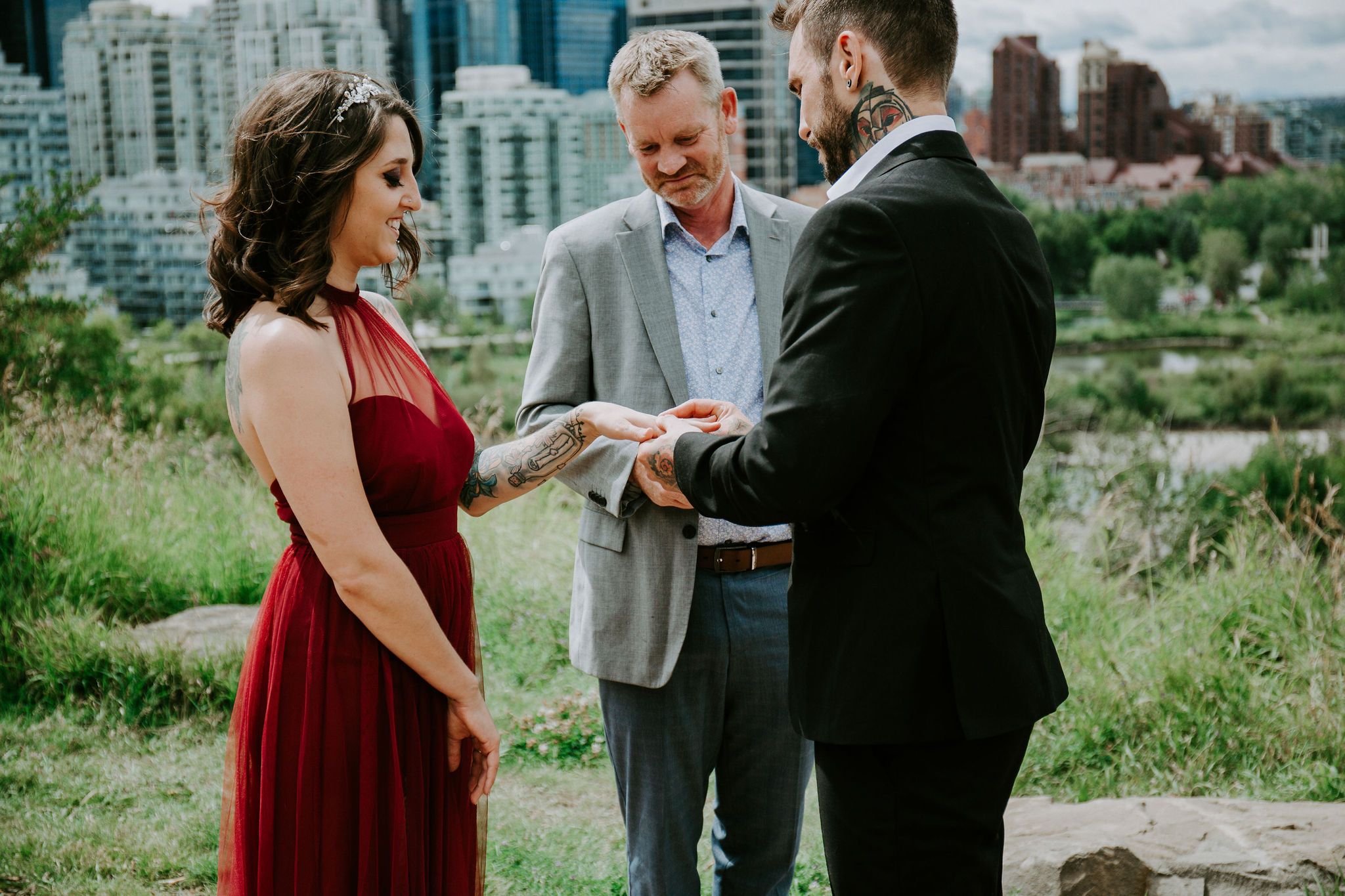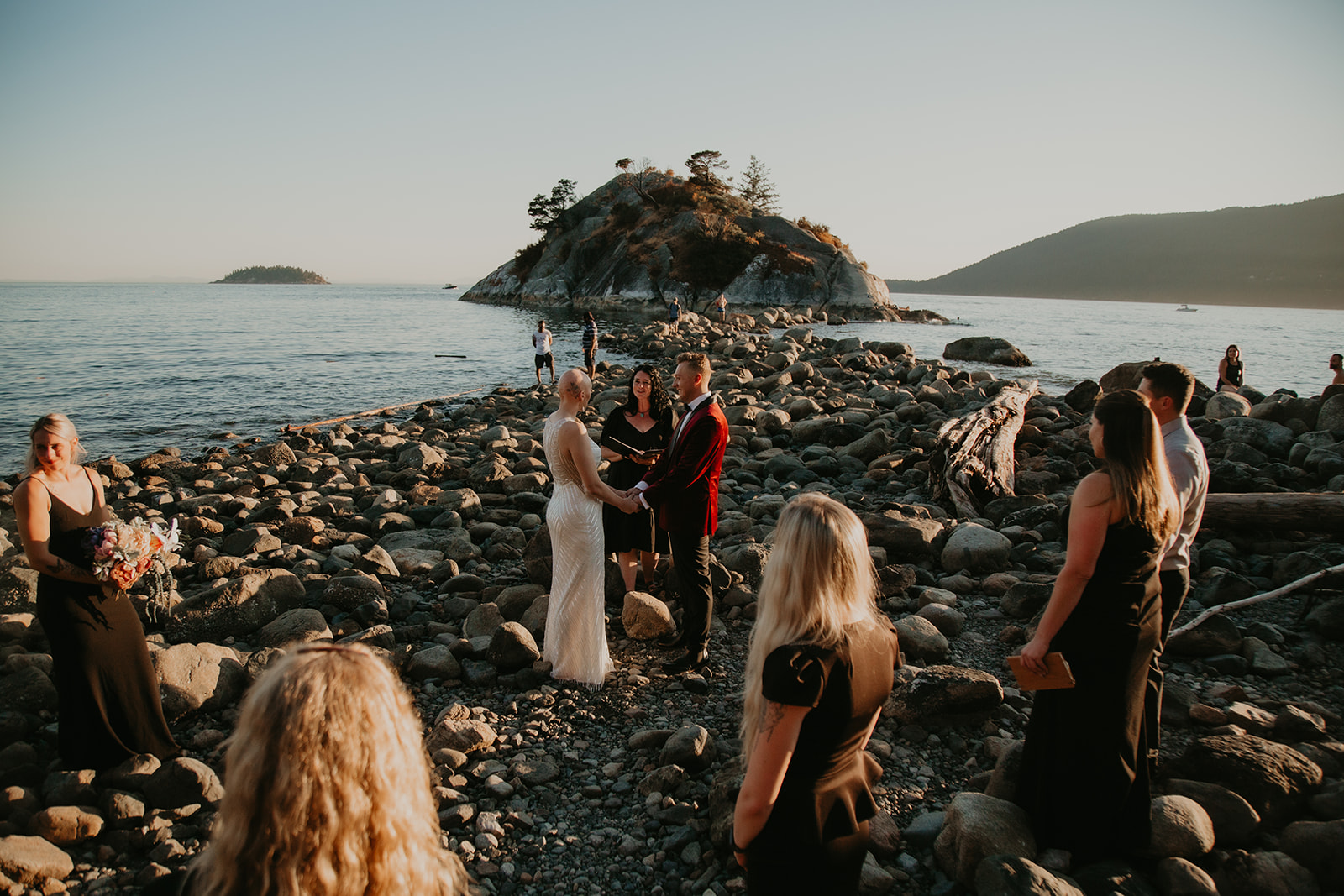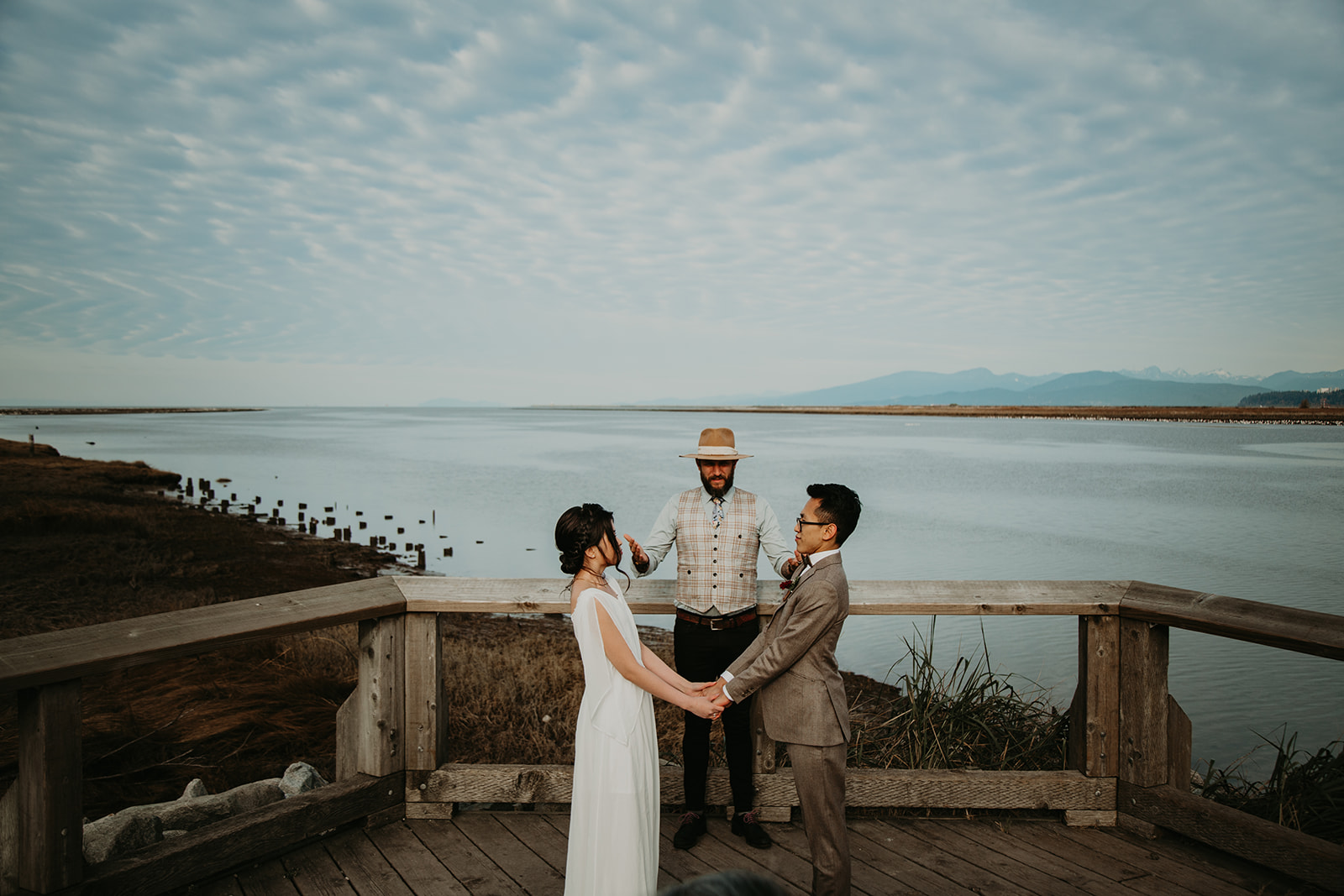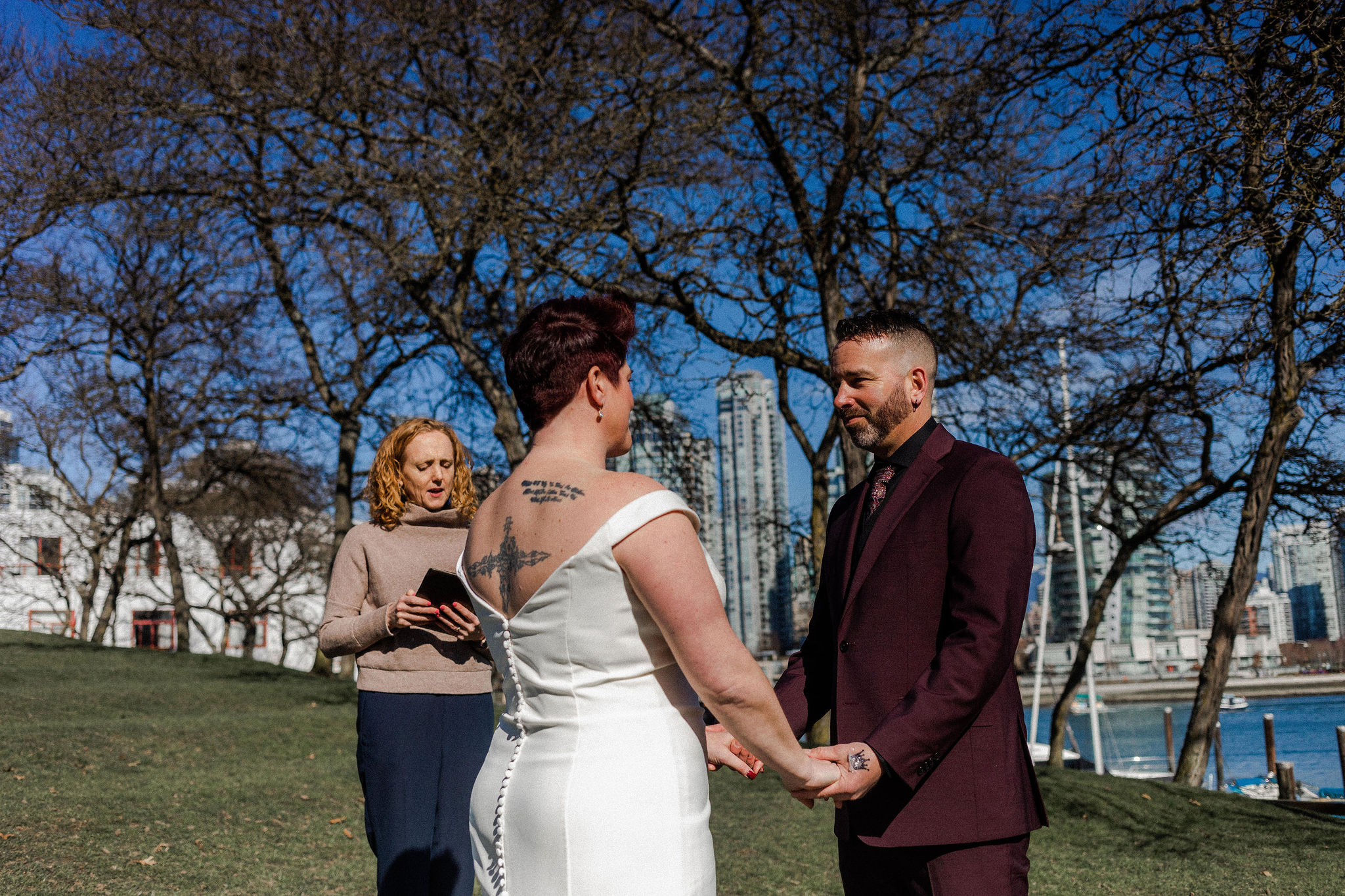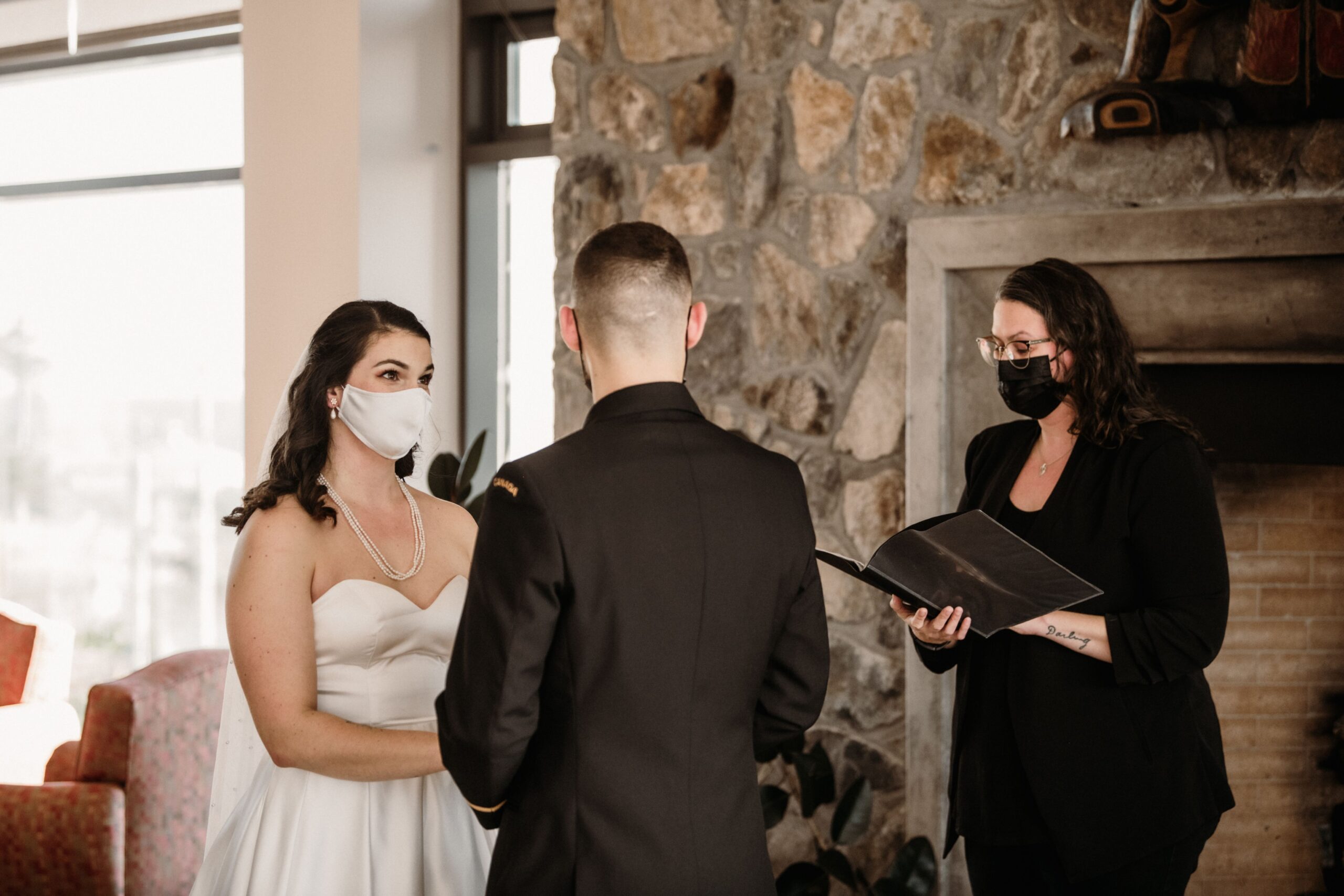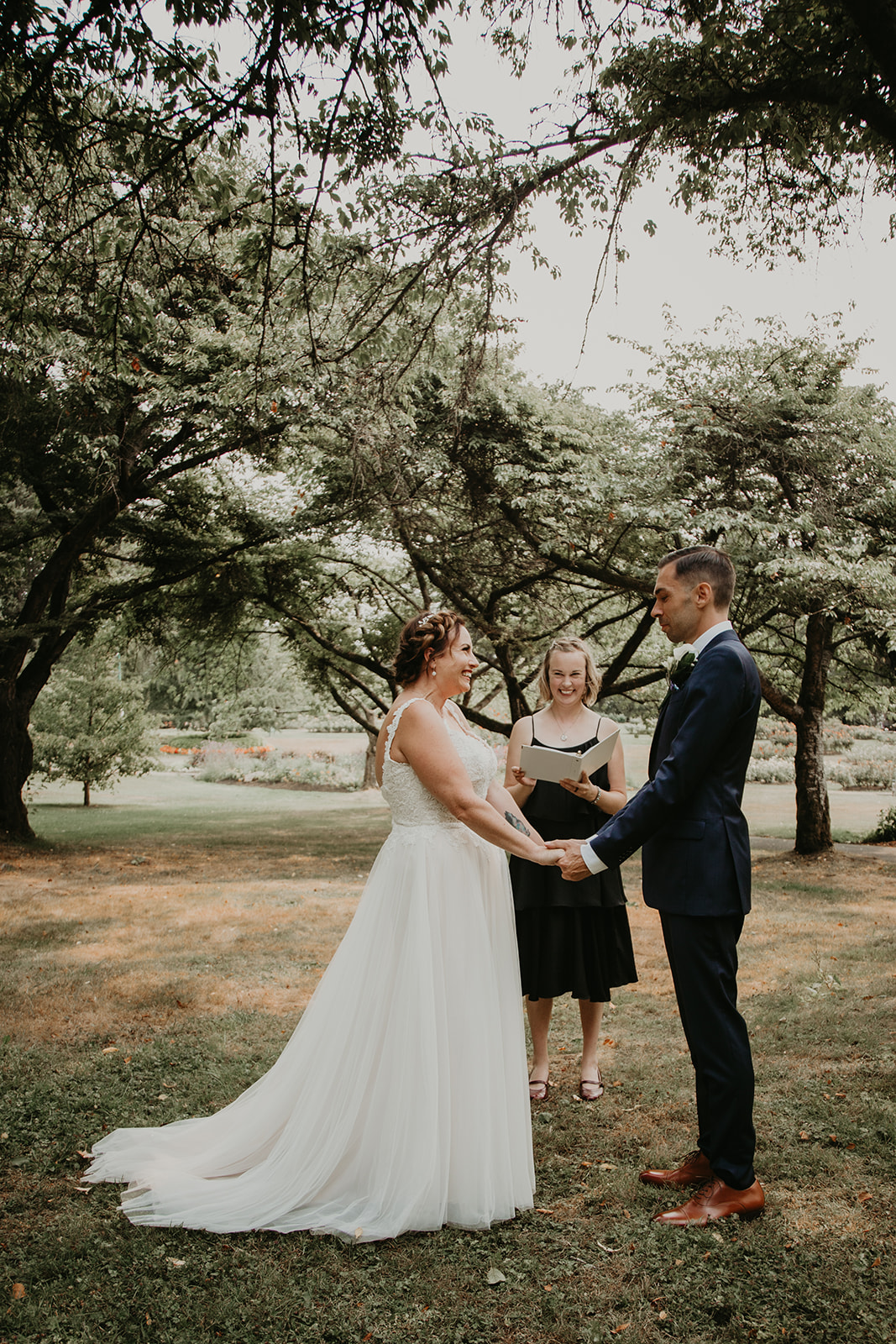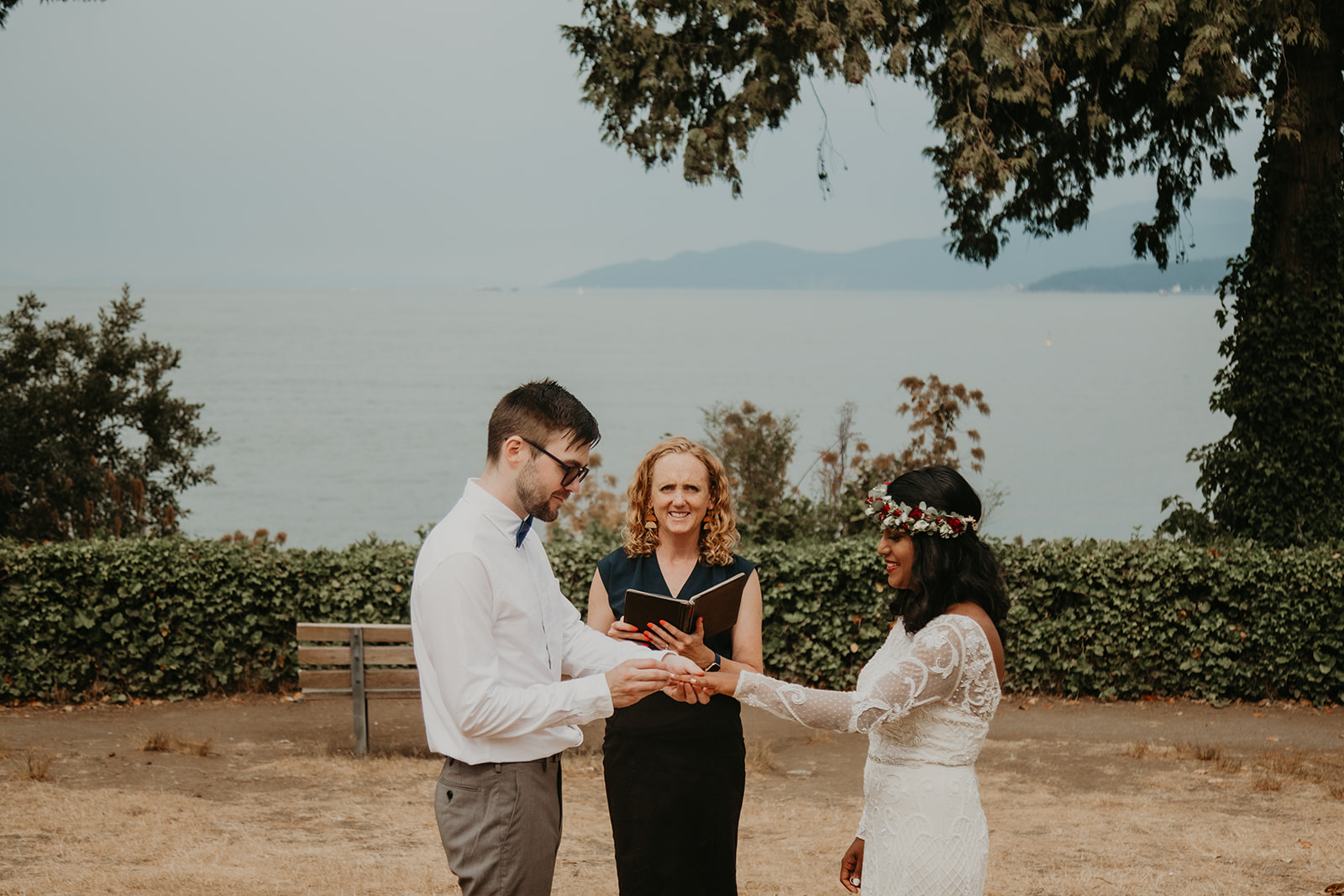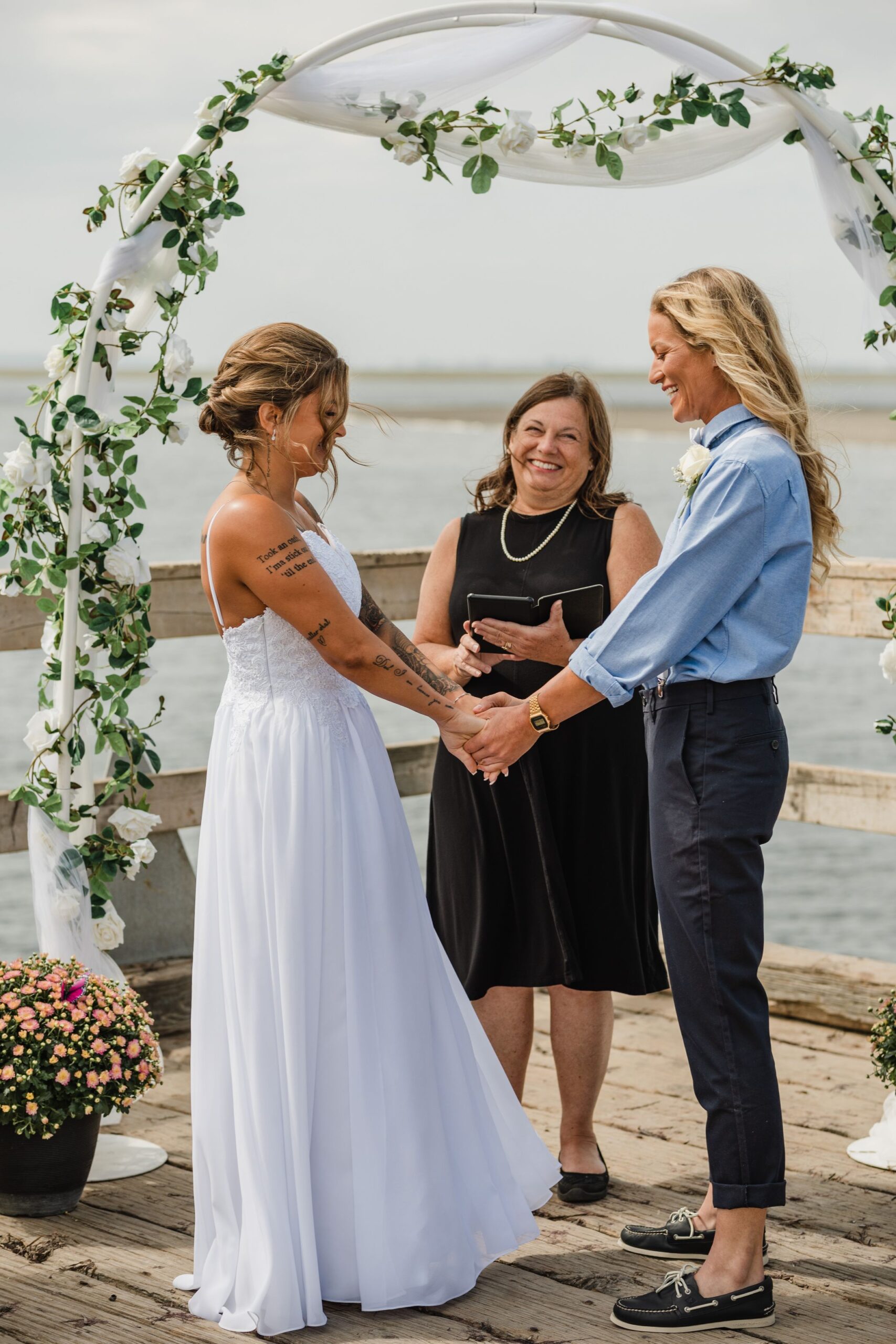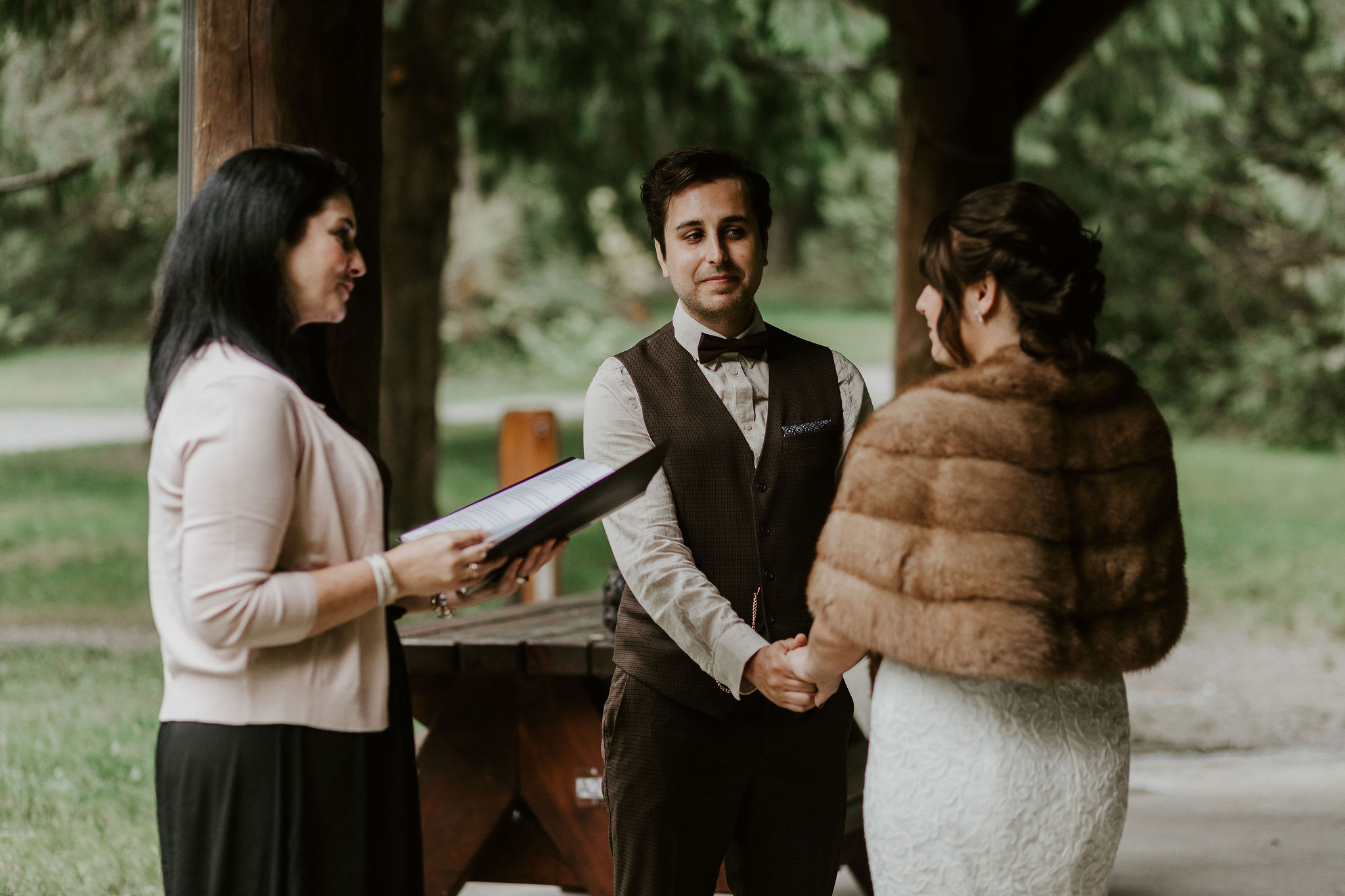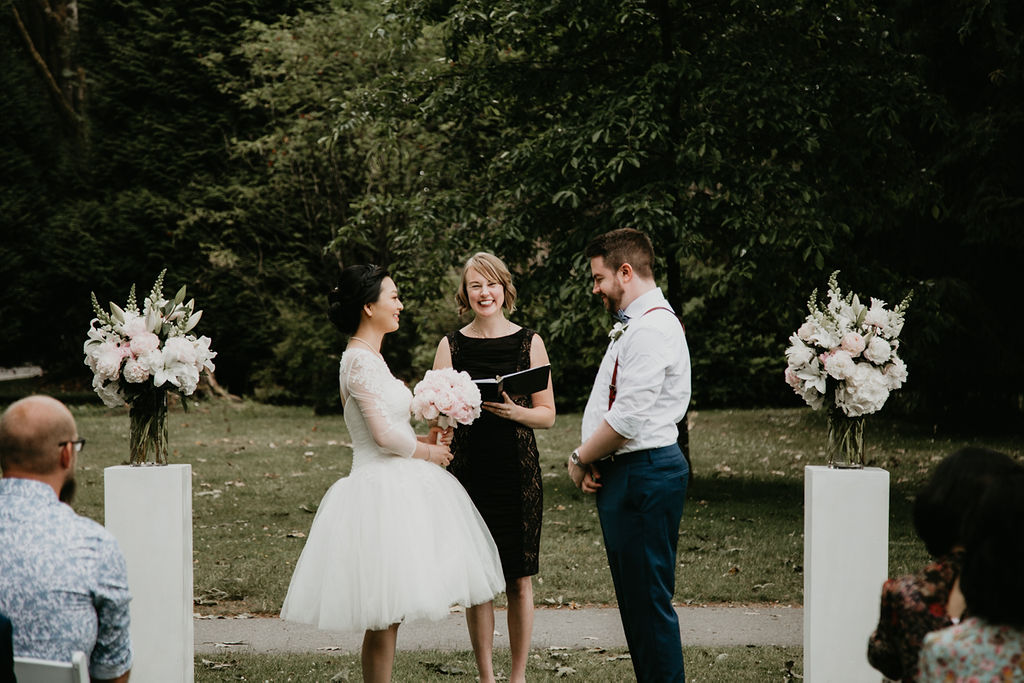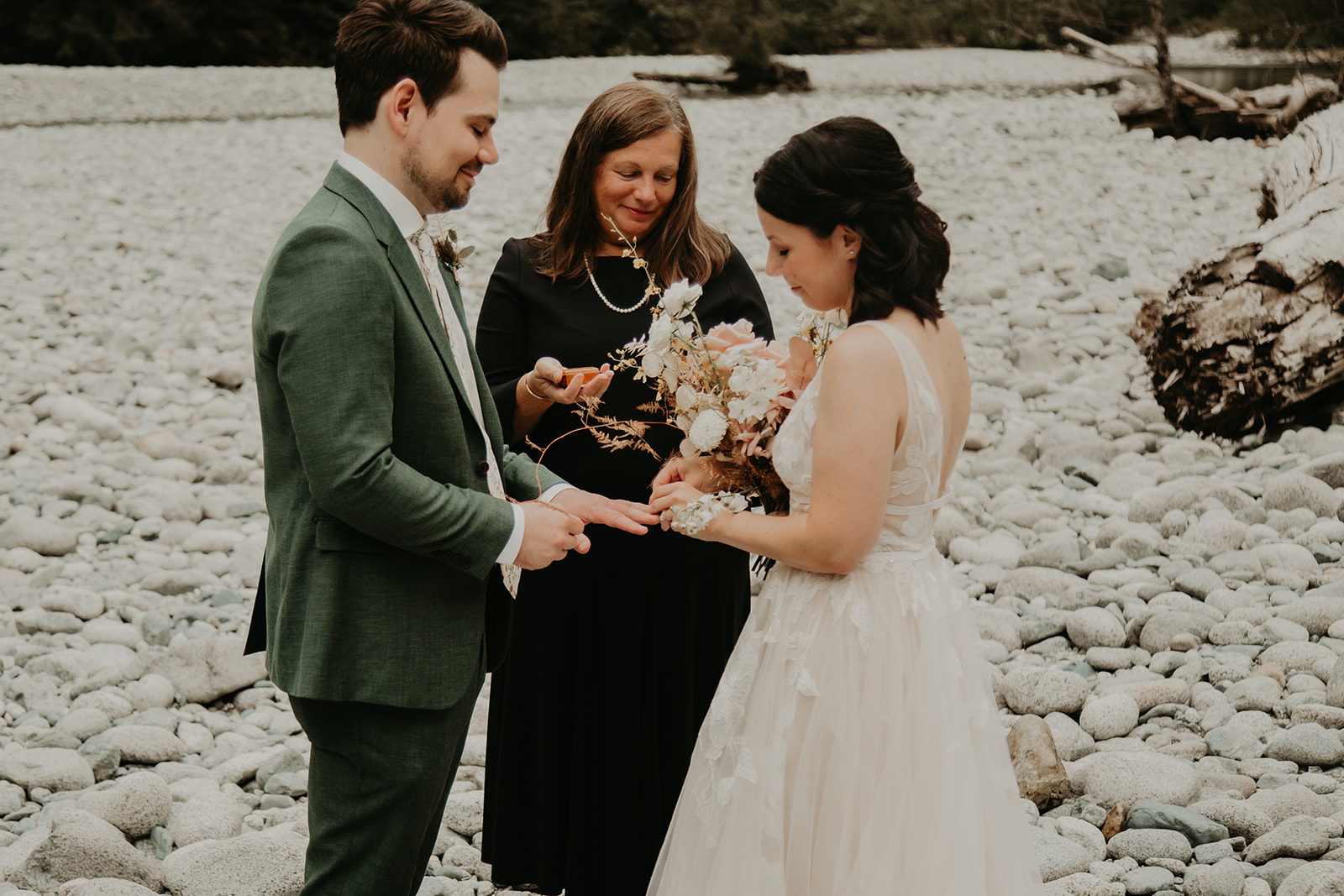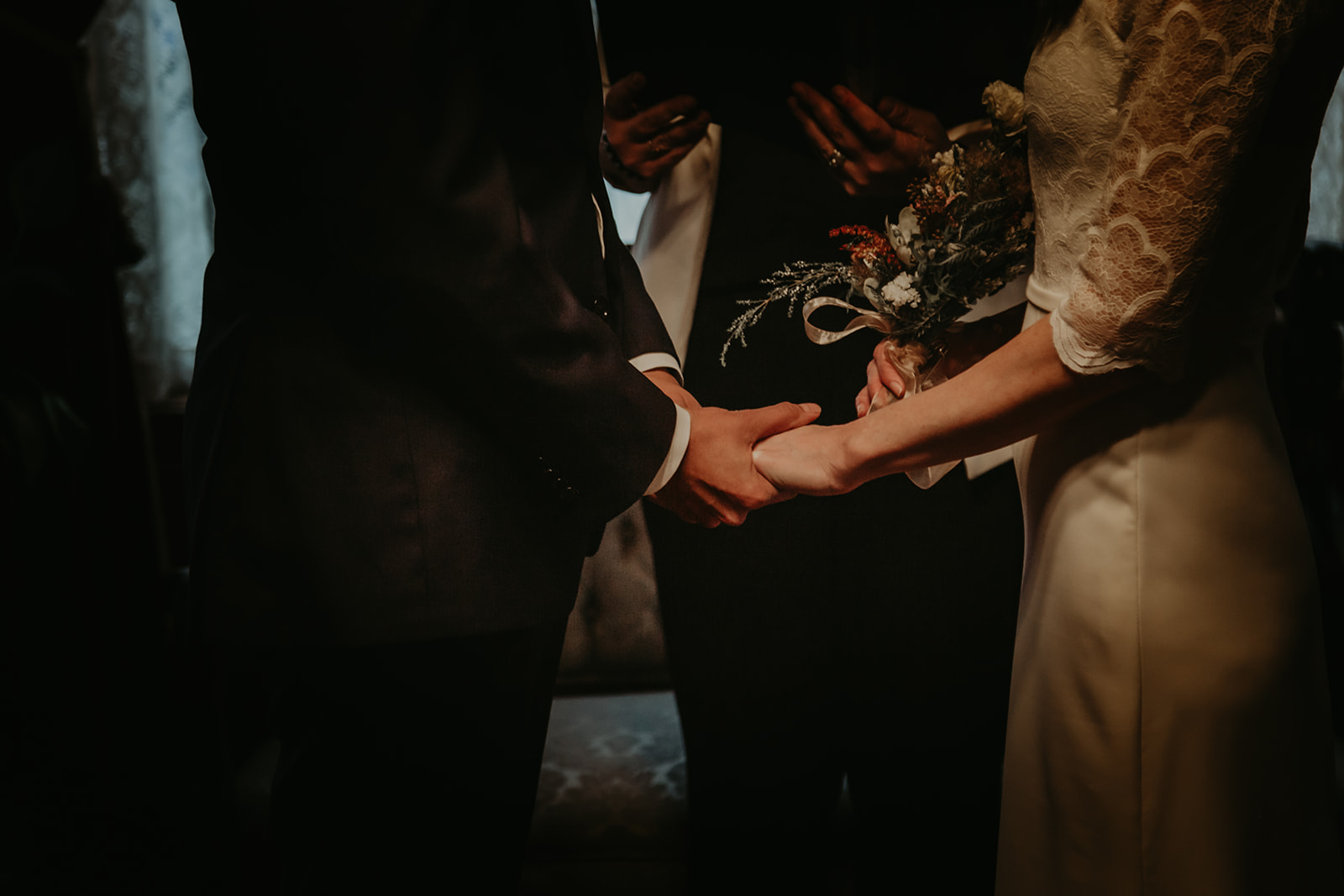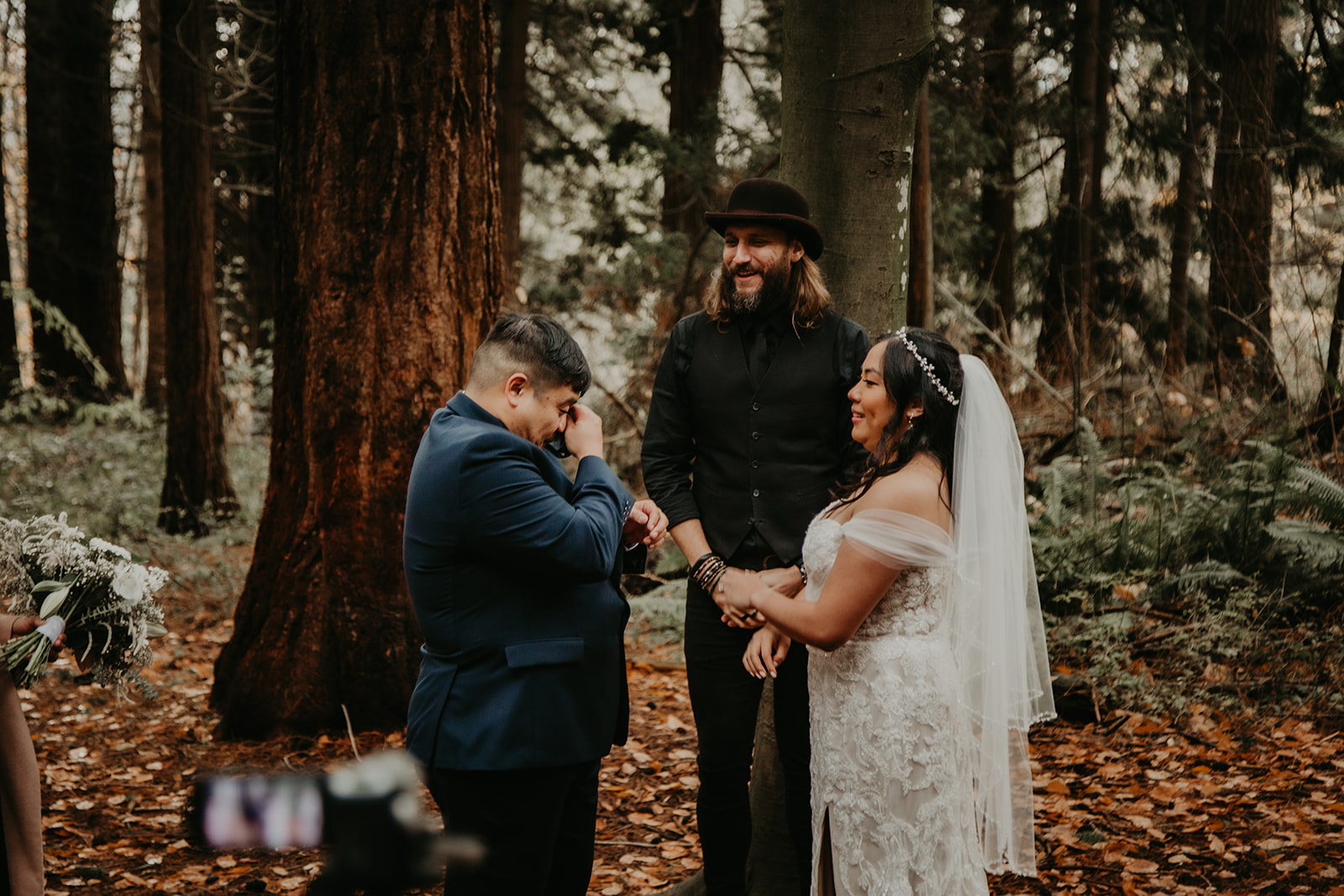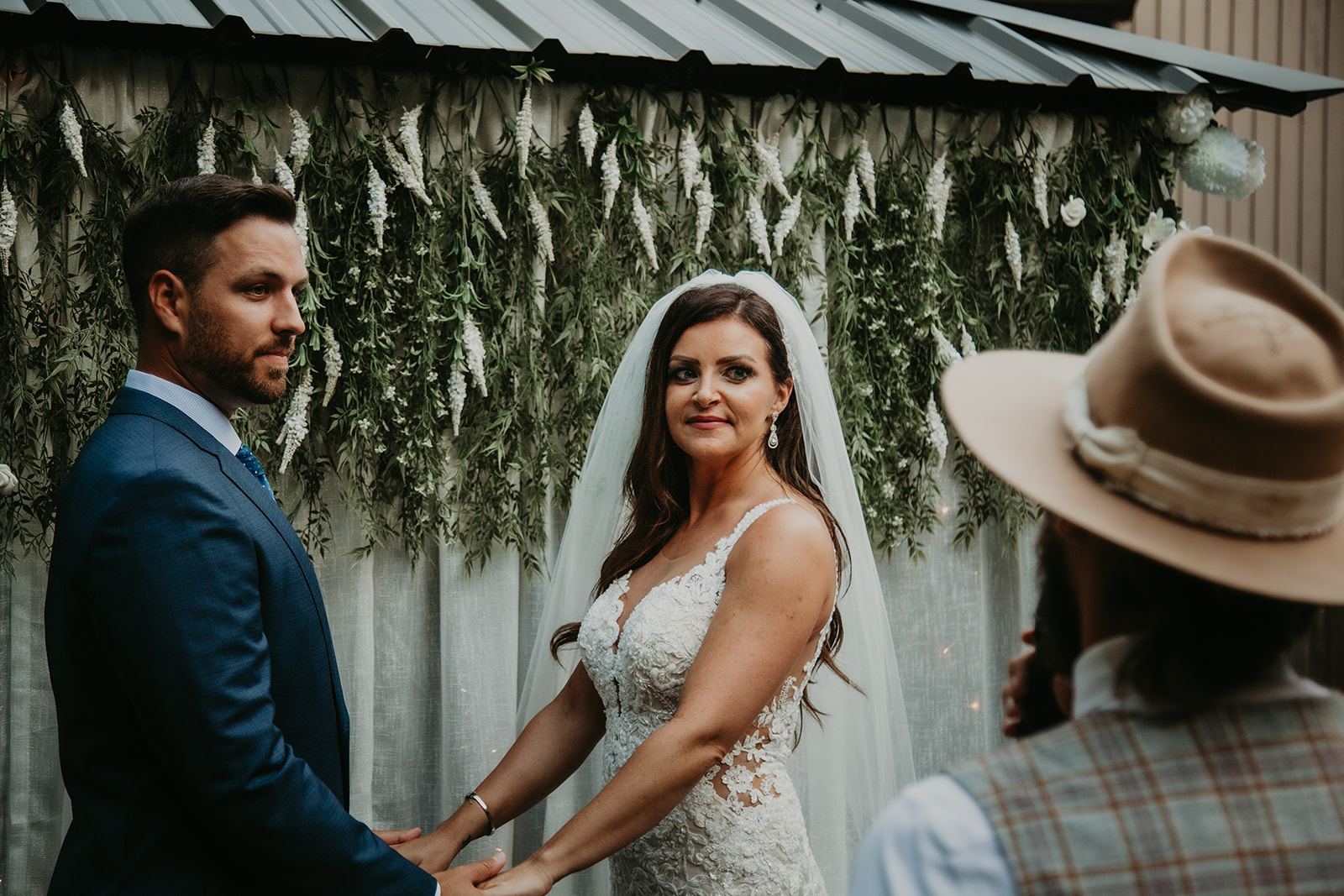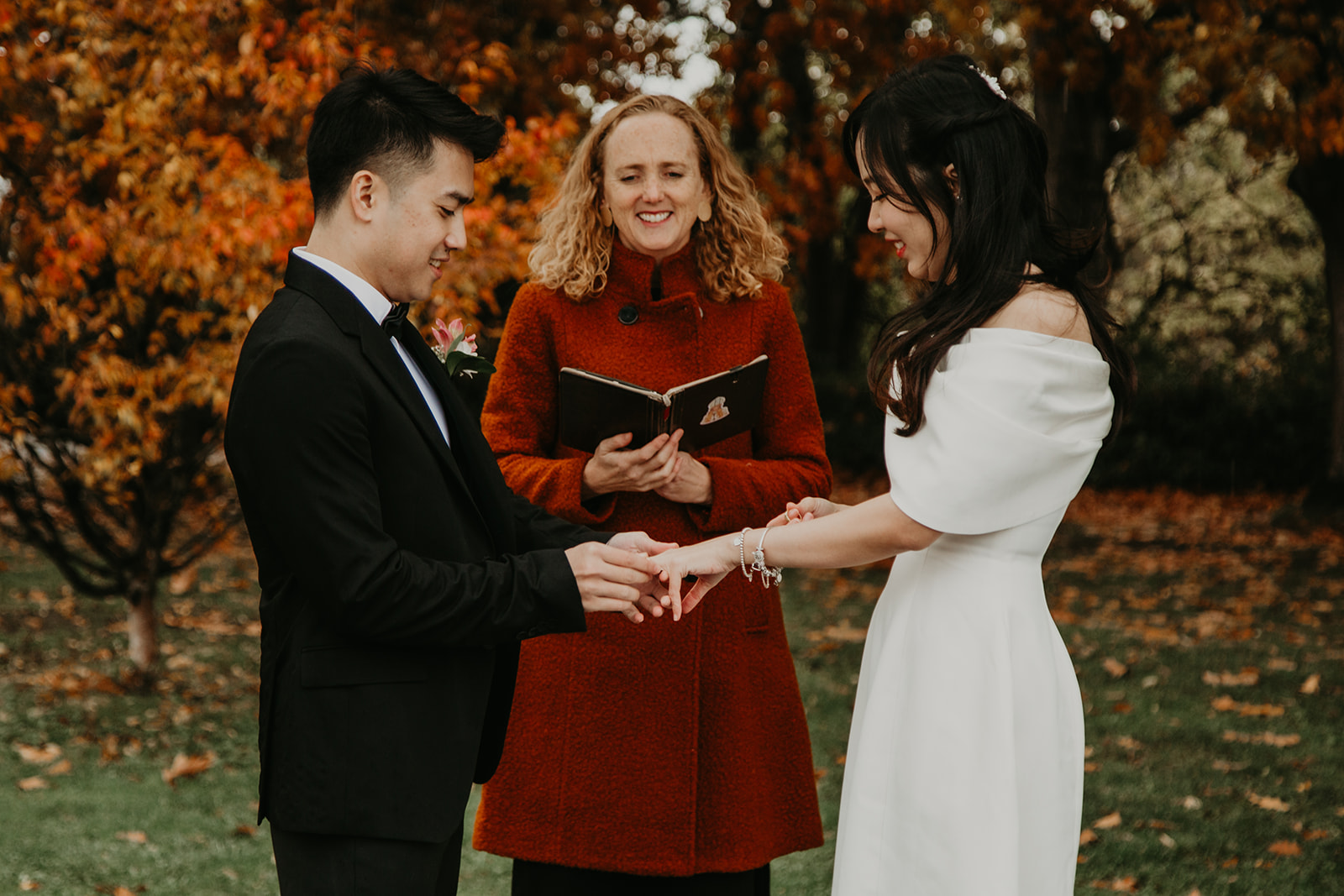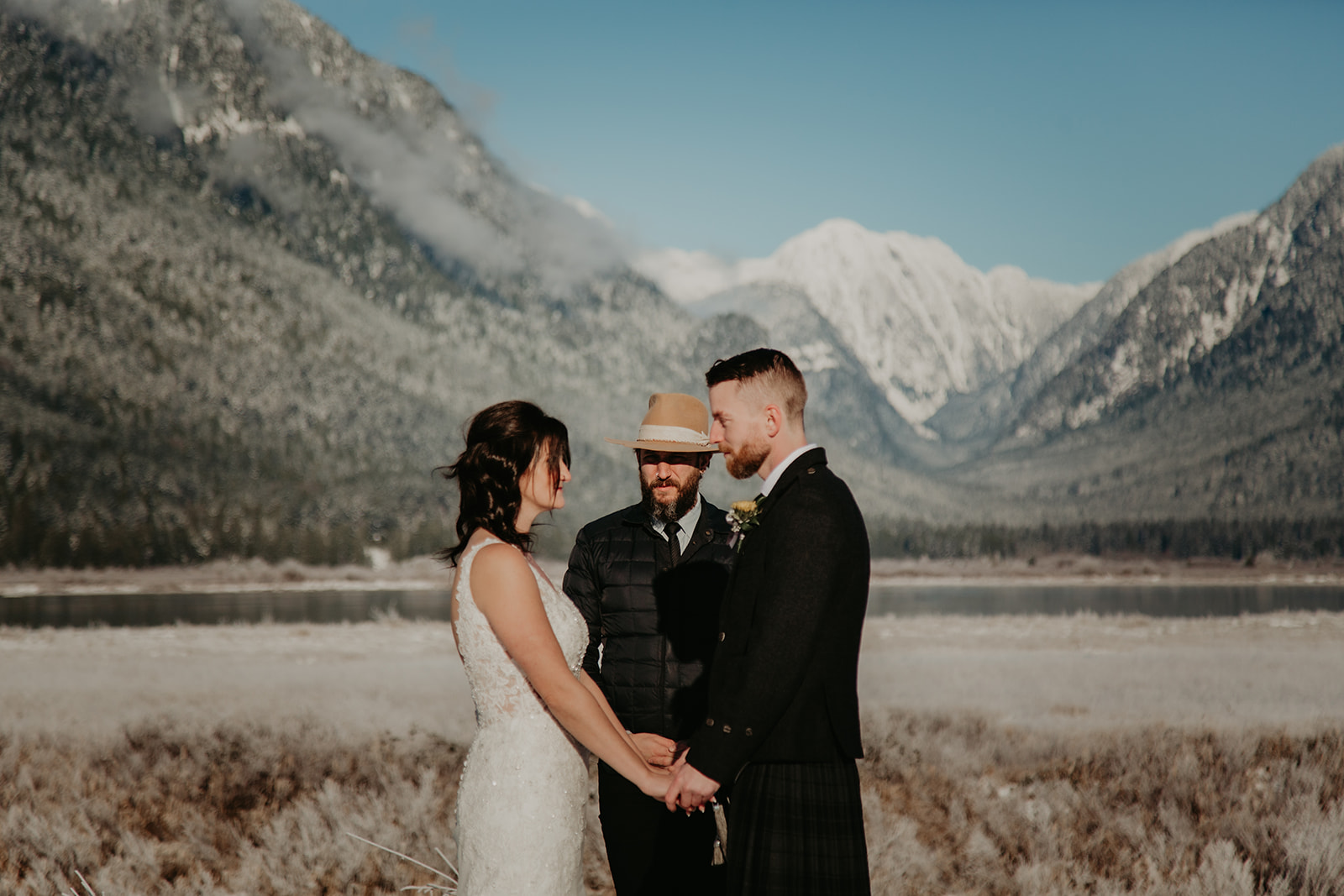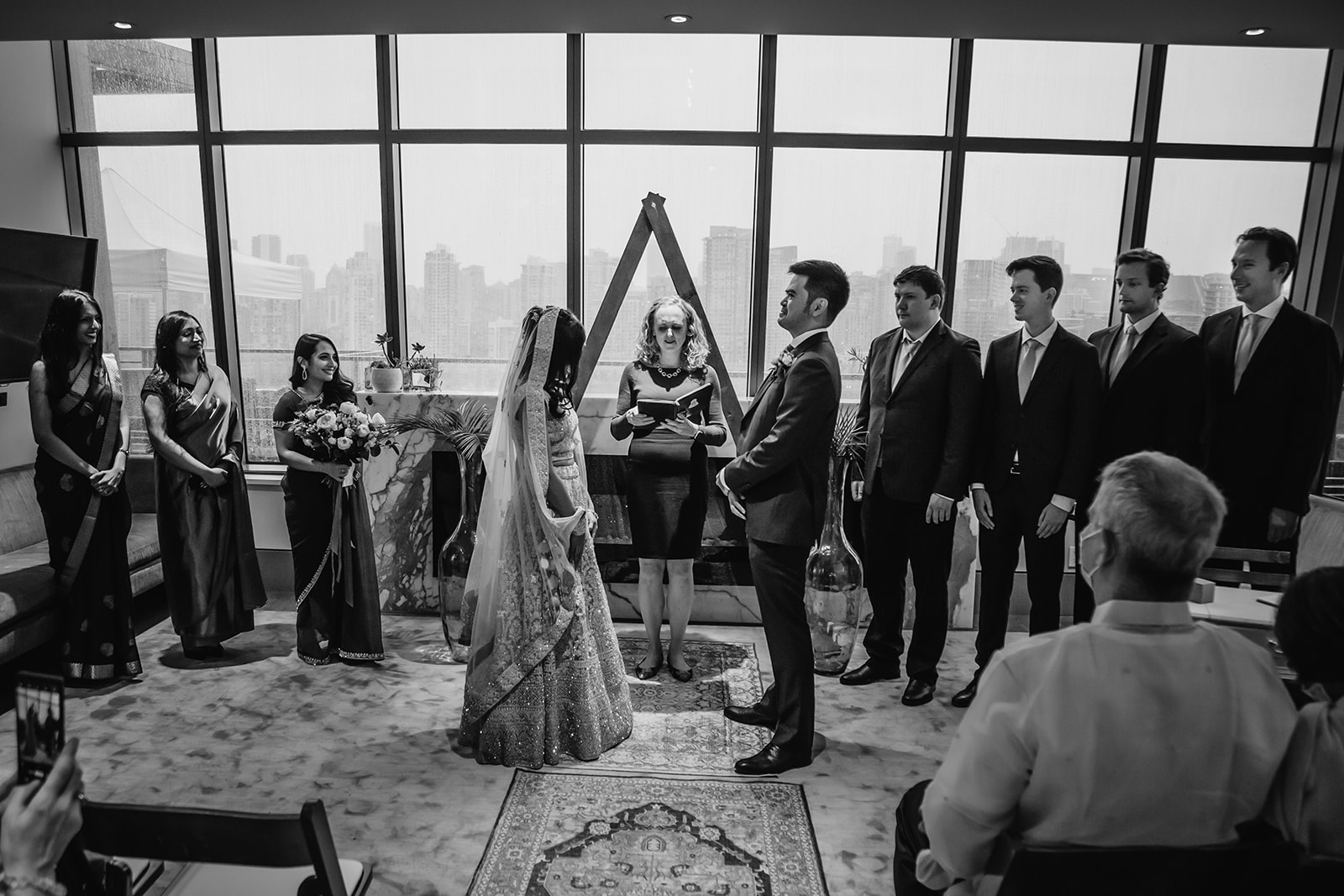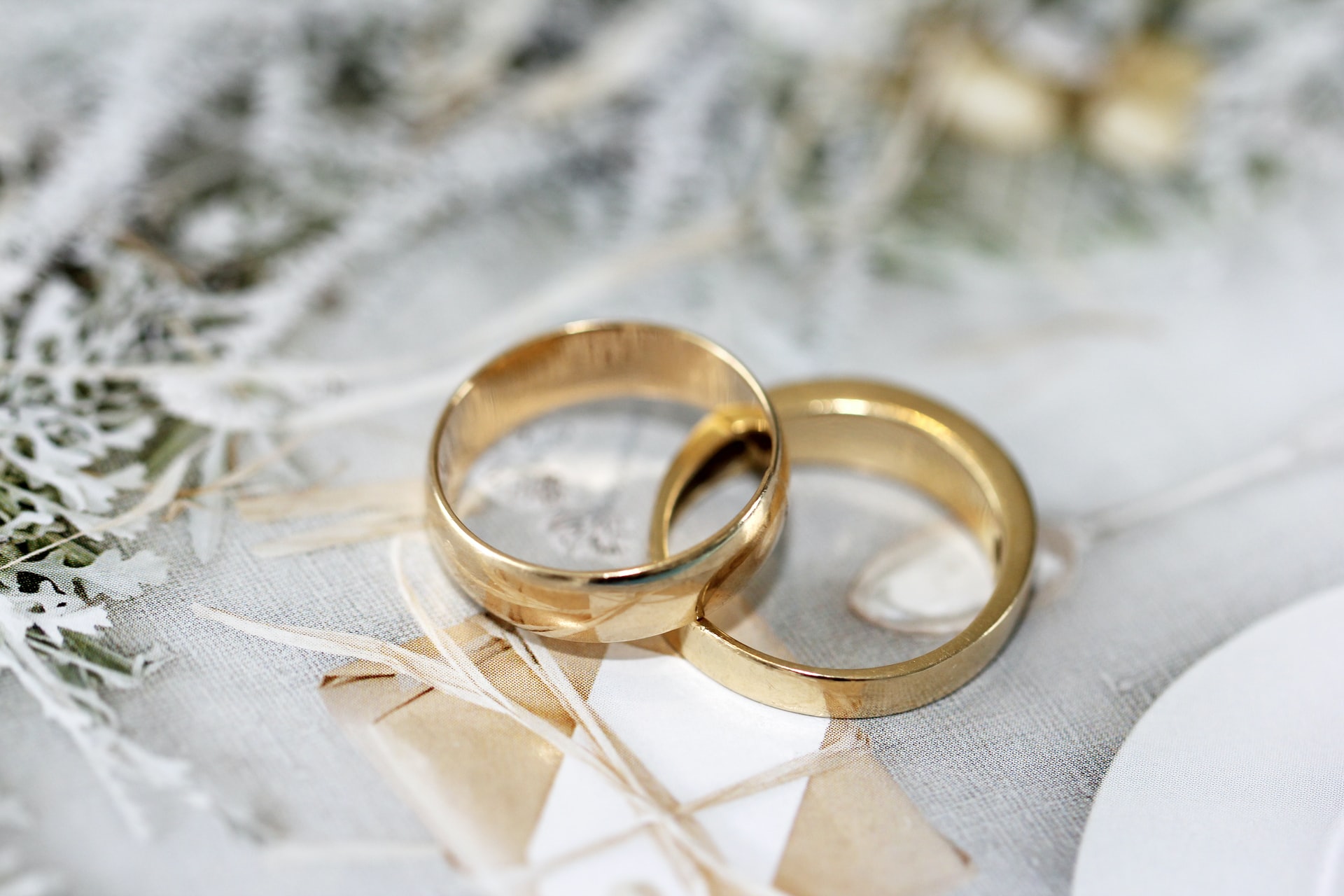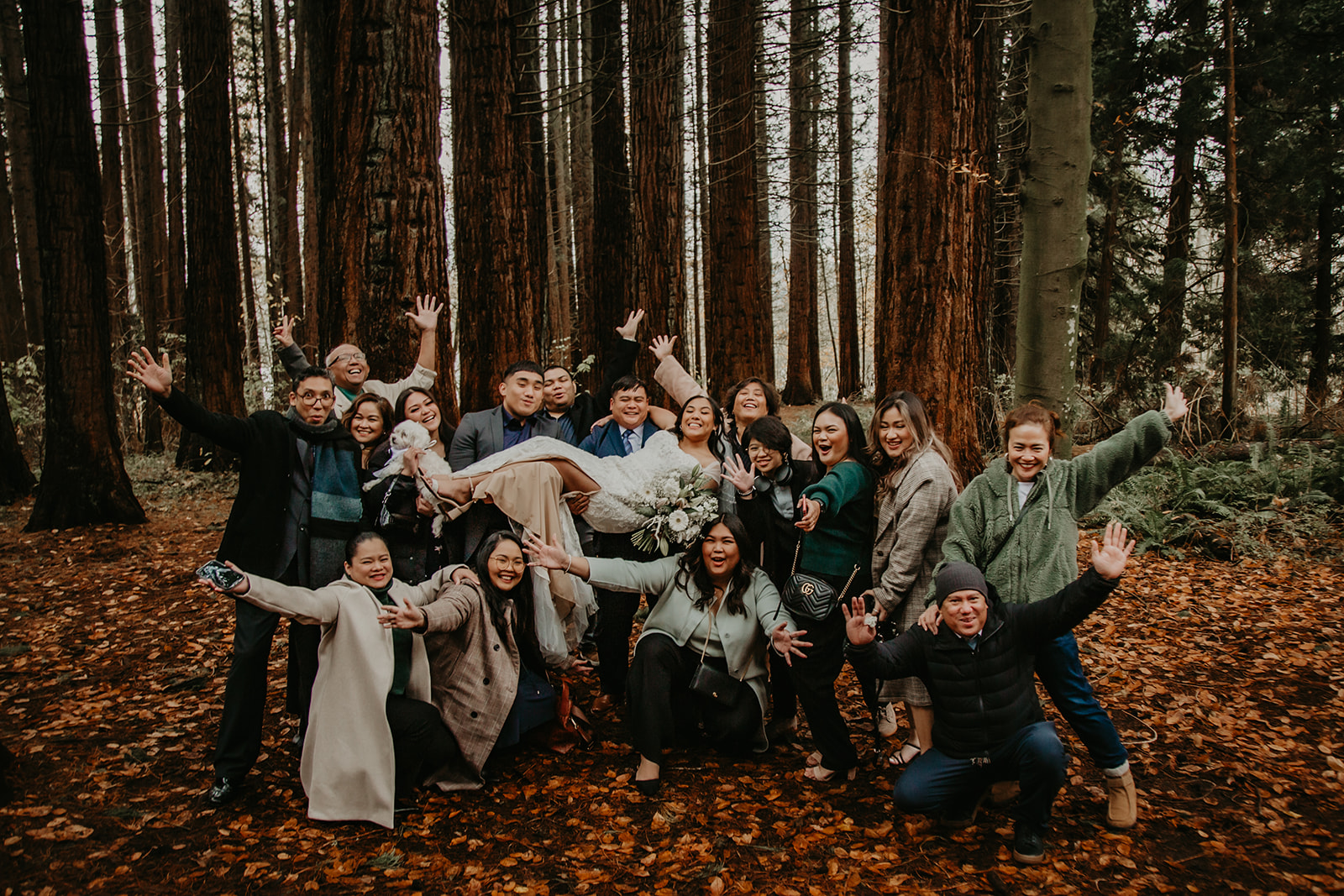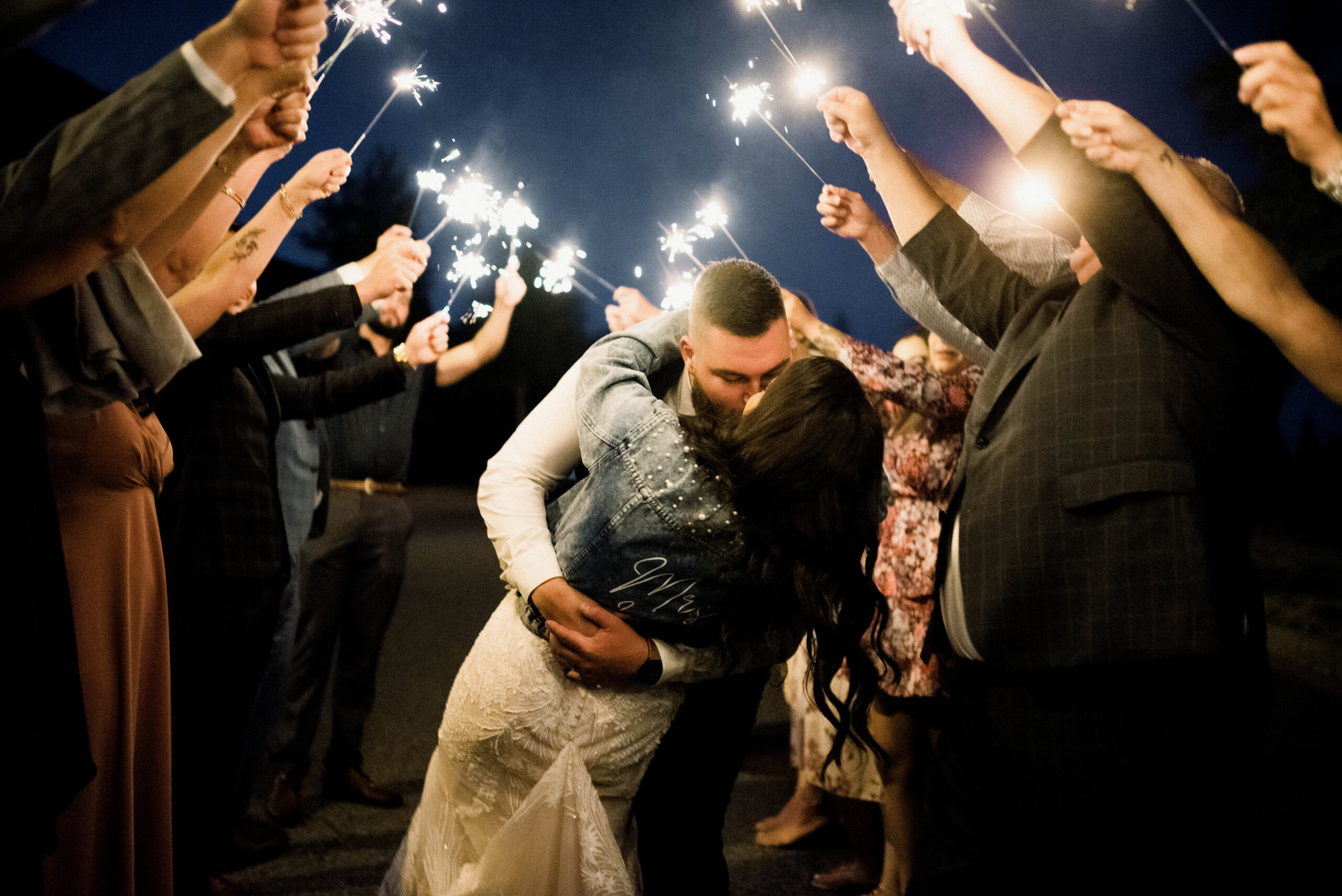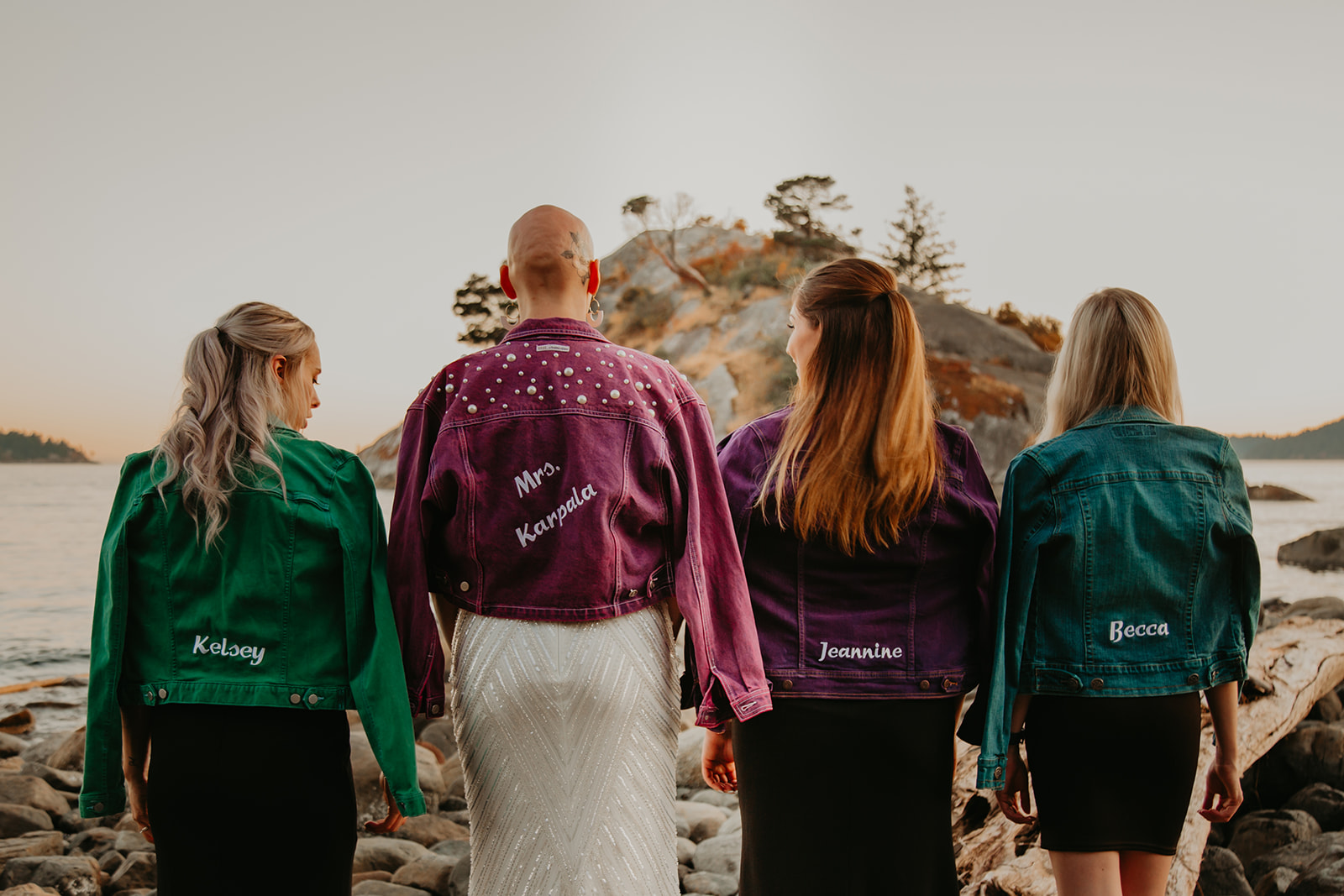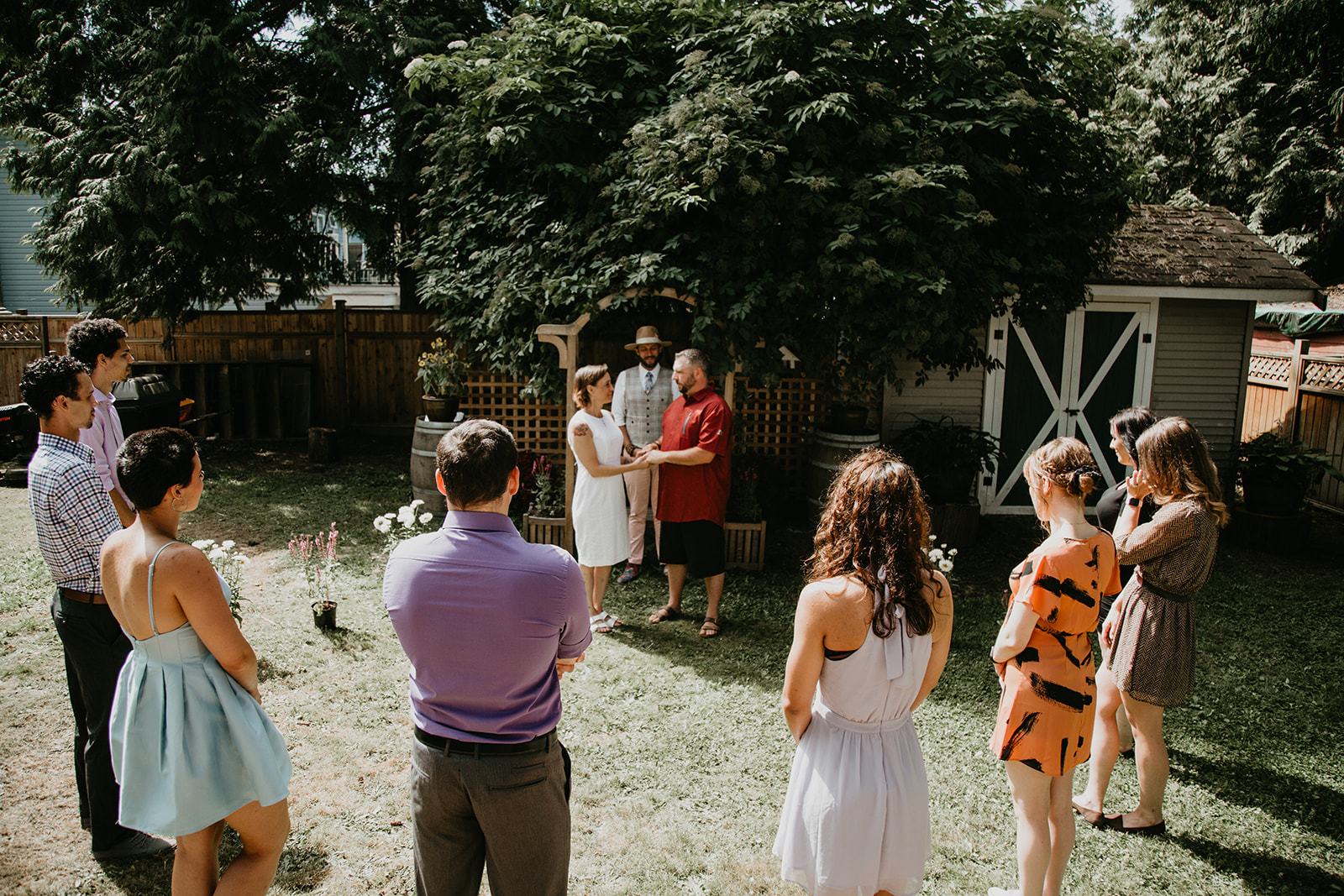As wedding officiants, we know a thing or two about performing a wedding ceremony. Our team has officiated thousands of them! So we know just how important it is for you to have a wedding ceremony script – and to put thought into each part of your wedding ceremony outline.
For answers to all of your ceremony questions, check out our wedding ceremony FAQs!
What is a wedding ceremony outline?
First things first, what is a wedding ceremony outline? A ceremony outline, or wedding script, is a written document that goes through each element of your wedding ceremony and details what will happen and who is involved. It’s used to help plan your ceremony and to let everyone who needs to know – like your officiant, planner and wedding party – what they’re supposed to do and when.
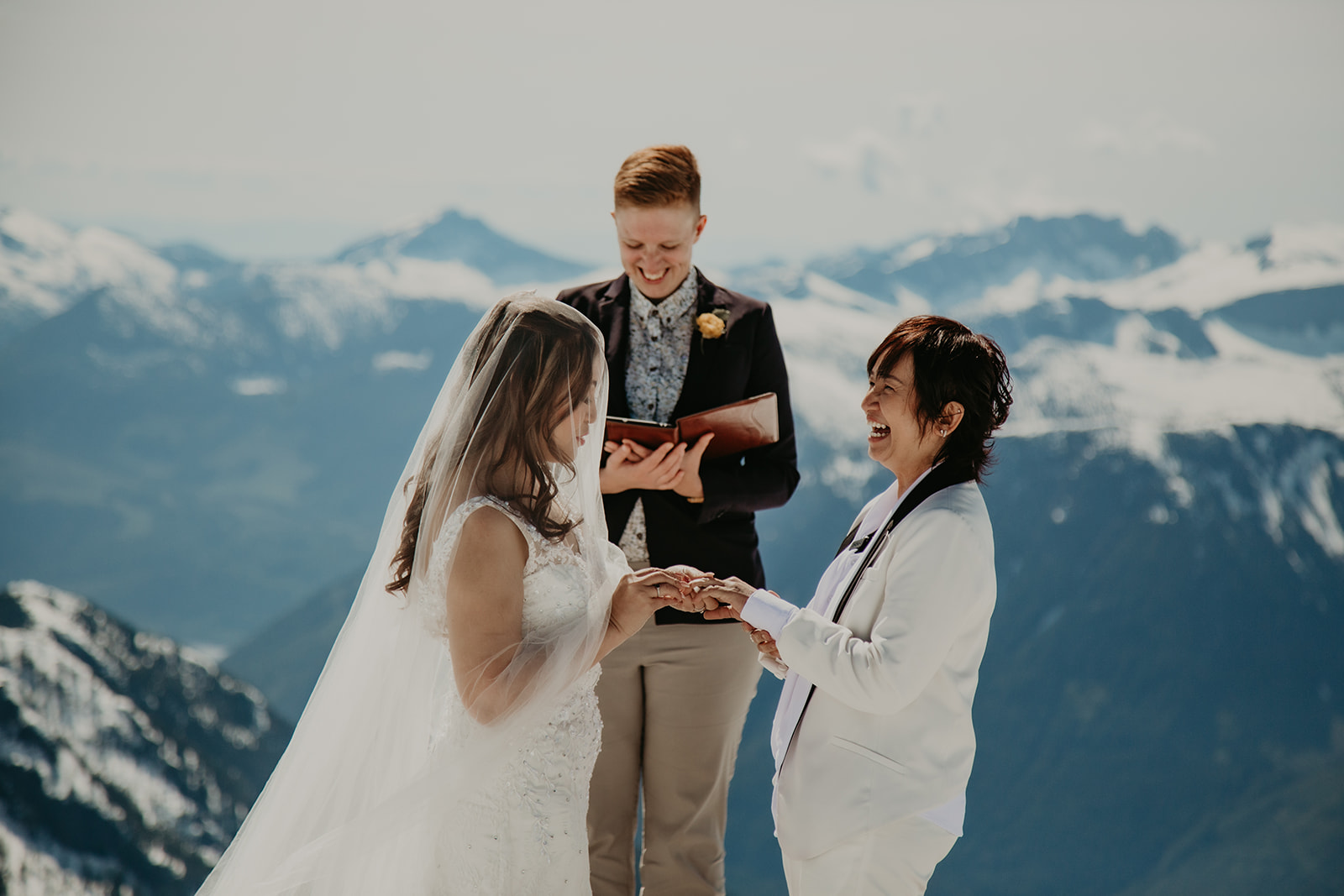
Do we need a ceremony script for our wedding?
Yes! Click here for why we believe you need a ceremony script for your wedding.
In short, your wedding ceremony is a once in a lifetime event, the reason why all of your friends and family have gathered, and the start of your marriage. By putting in the time to create a wedding ceremony outline, you can design a ceremony that reflects you two, that will be memorable, and that your vendors and wedding party can help you pull off.
Questions to ask when designing your wedding ceremony outline
Before you start designing the ceremony script for your wedding, ask yourself these questions:
How long is your wedding ceremony?
Many couples wonder, “How long are wedding ceremonies?” And the truth is, that’s up to you! Sure, you’ll probably have some legal requirements to fulfill in order to get married – and if you’re getting married within a religious institution they may have some additional requirements – but the actual ceremony can be as long or as short as you want.
While many couples say they want their married ceremony to be as fast as possible, we encourage you to slow down. This is your moment! This is when you and your partner commit yourselves to one another – the one time when all of the focus is on your love. Savour that moment! Recognize how powerful this ceremony could be and take the time to personalize it and make it your own.
Now, we’re not saying your marriage ceremony needs to last hours. No one wants that! But when you rush through it and insist on a ceremony lasting only a few minutes, it can be awkward. Your guests may wonder why you’re not taking it seriously and, more importantly, you rob yourself of the opportunity to mark this milestone in a meaningful way.
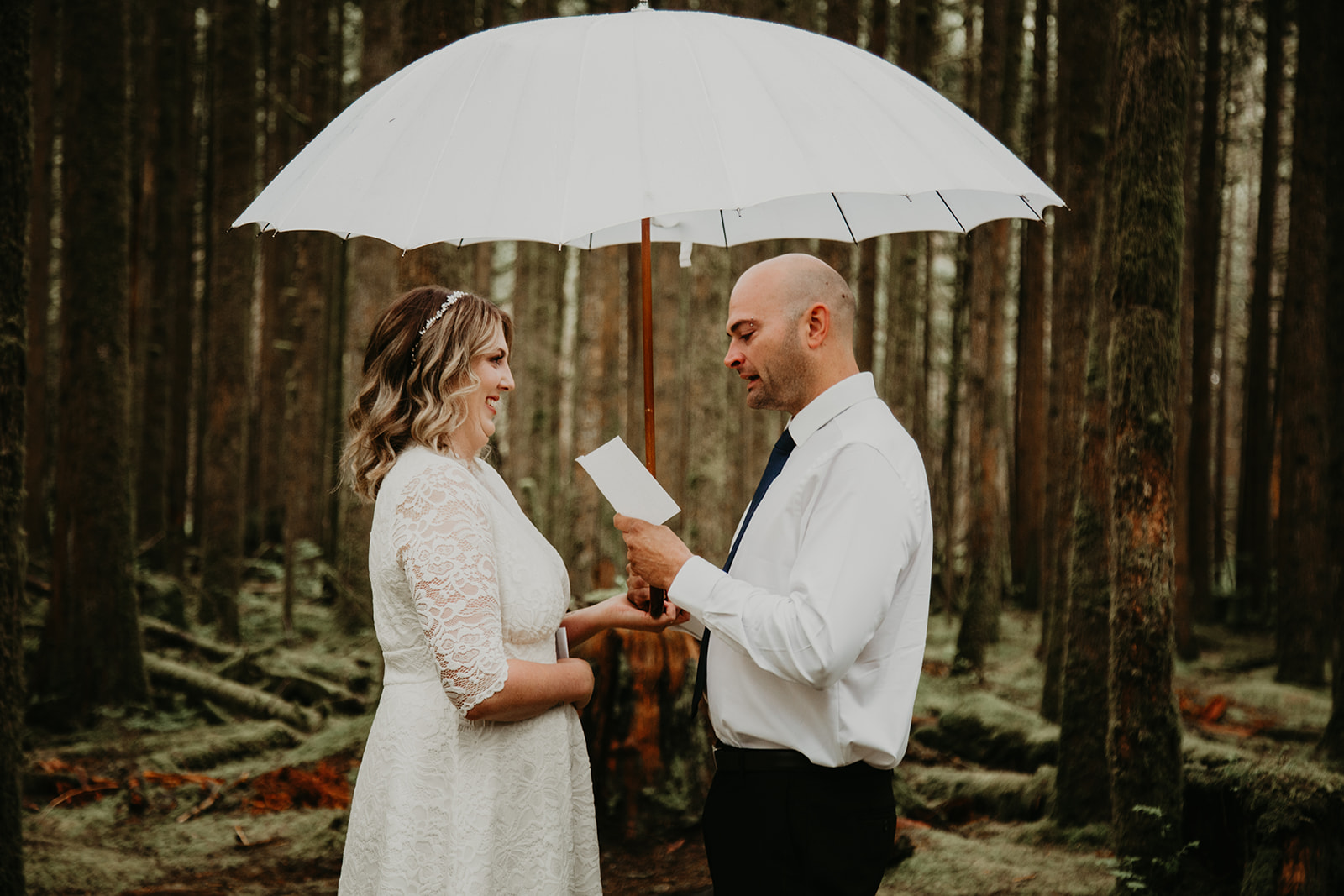
Who is marrying you?
The next thing you need to know before outlining your ceremony is who is going to marry you and perform your wedding ceremony. Whether it’s a marriage commissioner, justice of the peace, religious representative or wedding officiant (like us!), you’ll want to get in touch with them ahead of your ceremony. They may have their own version of a wedding ceremony outline or important things you need to include in your version.
If you’re looking for someone to marry you, meet our team of wedding officiants and get in touch to book!
What are the legal requirements of your marriage ceremony?
Depending on where you are getting married and who is marrying you, you may have to fulfill certain requirements in order to become legally married. Reach out to whoever is marrying you and/or do some research on your jurisdiction to see what is required.
Generally speaking, you’ll need to be married by someone who can legally officiate weddings, in front of two witnesses, and you’ll both need to consent to enter into marriage. You’ll also need a marriage licence that is signed by you two, your officiant and your witnesses.
Learn more about marriage licences in BC here!
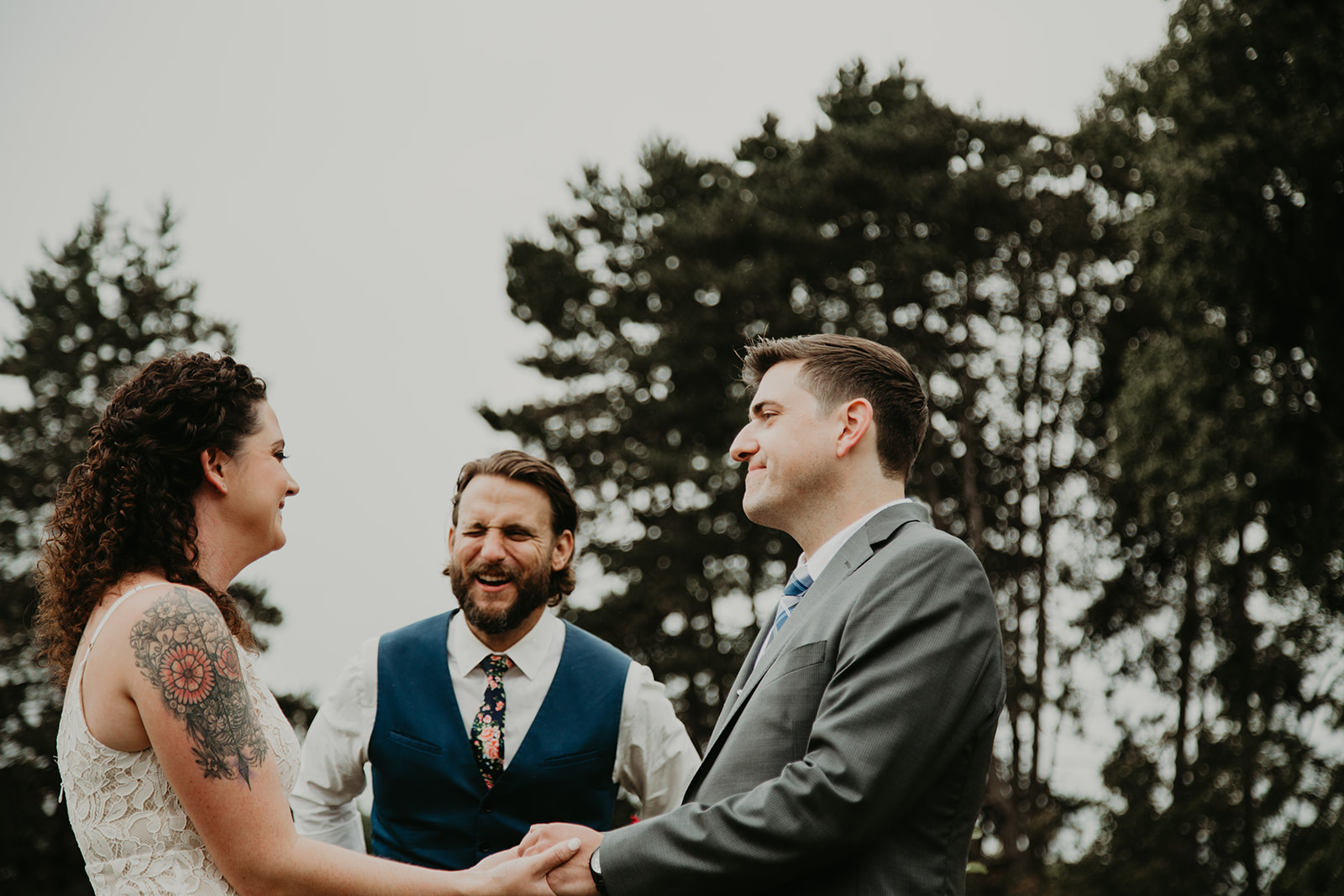
Are you including any cultural or religious elements?
Will you be including any special cultural or religious elements into your ceremony, such as handfasting, wedding prayers or a unity candle? If so, make sure those are noted in your wedding ceremony outline. Especially if these elements require advanced preparation, participation from your guests or experience from your officiant, you’ll want to make sure they’re part of your ceremony planning as soon as possible.
Who needs to be aware of the wedding ceremony outline?
Lastly, before you dive into creating your wedding ceremony outline, consider who will need to see it. Knowing who will be involved in your ceremony ahead of time means you can create an outline that will answer all of their questions. A few people who may need to be aware of your wedding script include:
- Your wedding planner
- Your wedding officiant
- Your wedding party
- Anyone involved in the processional or recessional
- Anyone doing a reading during the ceremony
You may also need to include other vendors involved in your ceremony, such as ceremony musicians or decorators, in your ceremony outline. While they might not need a full run down of your ceremony, they’ll definitely appreciate a heads up about what is happening and when.
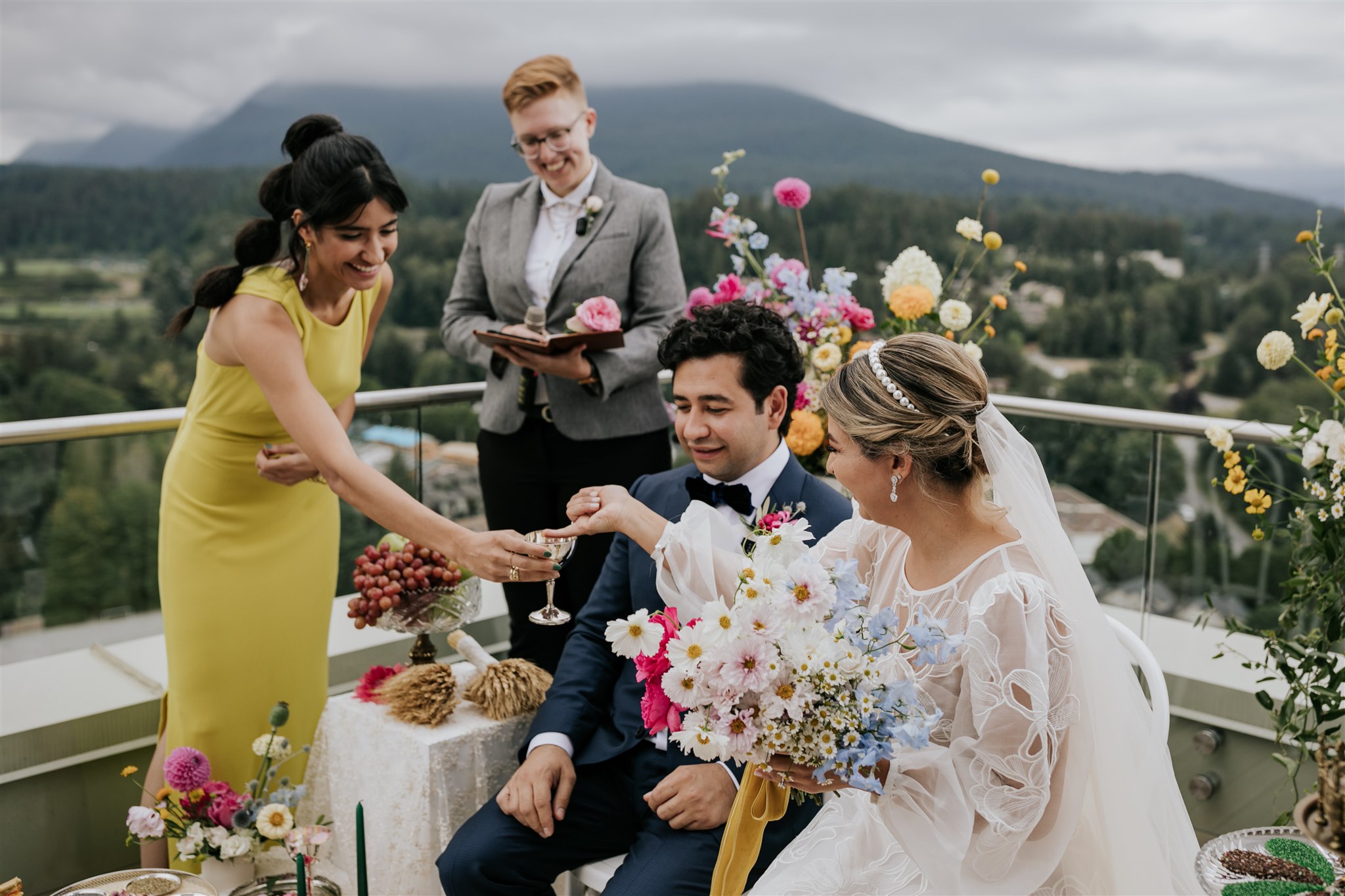
15 things to include in your wedding ceremony outline
A few final notes to keep in mind when putting together your ceremony script:
- Depending on where you are getting married, who is performing the wedding ceremony, and what religion or what culture you’re getting married in, your ceremony outline may look a little bit different. Feel free to use the elements and sample wedding ceremony below as a rough guide, instead of strict instructions.
- Get creative! You can make your ceremony your own by including creative elements or involving your guests in your wedding ceremony. There’s no one right way to get married.
- Remember that this is your wedding and you should do it your way. Only include ceremony elements you want and get rid of anything that doesn’t resonate with you.
Okay, let’s dive into creating the outline of your wedding ceremony!
1 – Logistics
The first section of your wedding ceremony outline should be all of the big picture logistics. This might include contact info for the planner and wedding party, the address of the ceremony venue, start and end times, what ceremony music is being played, and important things to bring to the ceremony space.
2 – Announcements by your officiant
Typically, performing a wedding ceremony will begin with some announcements by the wedding officiant. This is a great way to take care of any housekeeping notes, inform guests of where to go after the ceremony, remind them if your ceremony is unplugged, and invite them to take their seats so you can get this show on the road!
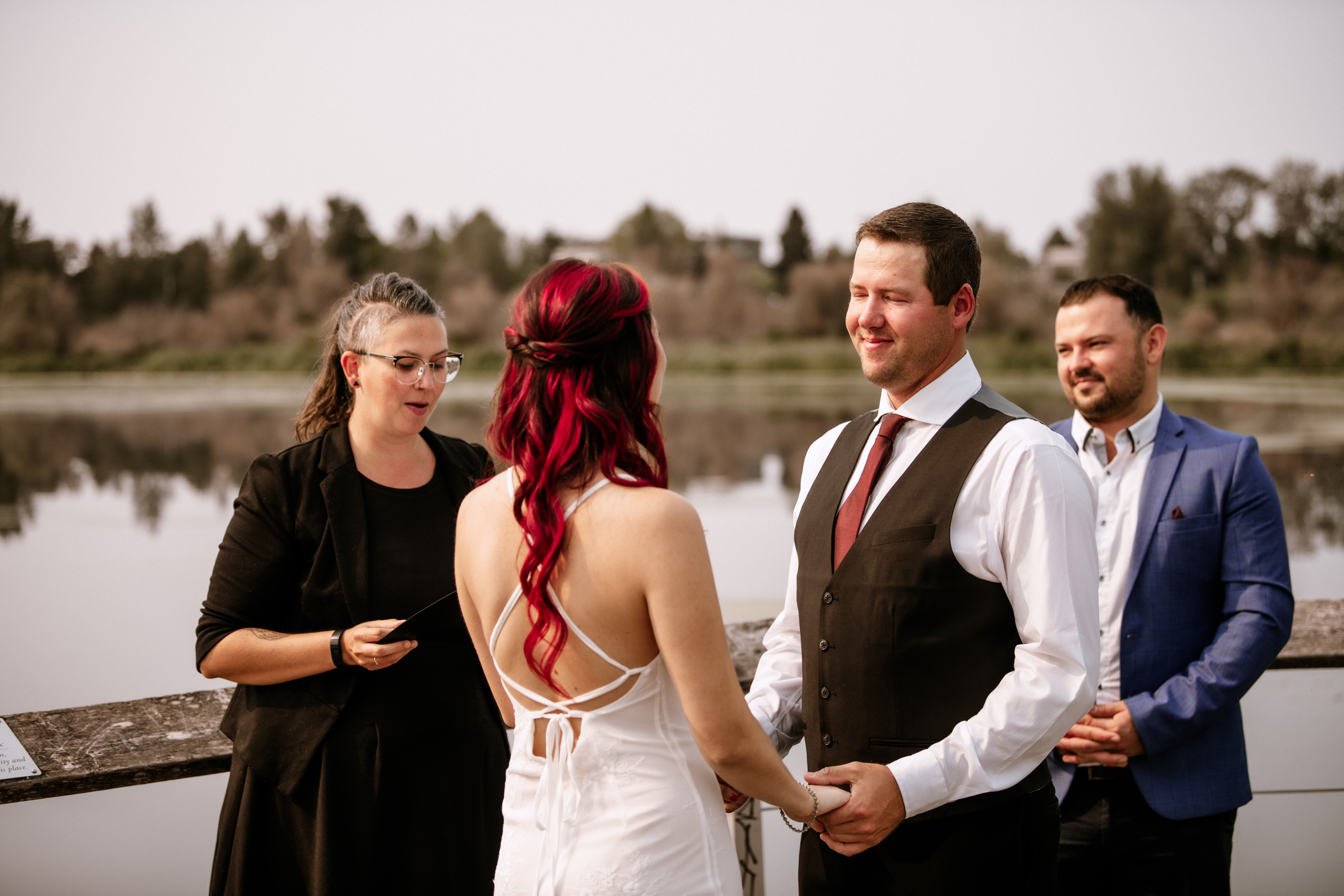
3 – Processional
After any announcements are made and guests are seated, the wedding ceremony begins with a processional. The processional is how the couple and their wedding party come down the aisle. Check out our list of 6 processional orders and 8 unique processional ideas to find what works best for you.
4 – Words of welcome
Once you’ve made it down the aisle, your wedding officiant will begin by welcoming everyone to your wedding. They may also welcome you and invite you to turn around and wave at all of your loved ones!
5 – Declaration of intent
The declaration of intent is the part of your wedding ceremony where you declare your intent to marry your partner. This can also be called a commitment statement. Typically, it’s a short line said by your officiant that you follow by saying, “I do.”
For more about declarations of intent, check out our declaration of intent blog post and YouTube video with commitment statement examples!
6 – Optional readings or prayers
If you’re choosing to include readings or prayers into your wedding ceremony, this is typically the part of the ceremony when they would happen. Check out our list of resources to find the best prayer, reading or quote for your wedding:
- Wedding Ceremony Readings from Songs
- Romantic Wedding Ceremony Readings
- Wedding Ceremony Readings from TV & Movies
- Wedding Ceremony Readings from Literature
- Offbeat Wedding Ceremony Readings
- Alternatives to 1 Corinthians 13 for Your Wedding
- The Best Wedding Prayers & Blessings for Your Wedding Ceremony
- 33 Wedding Love Quotes to Include in Your Wedding Ceremony
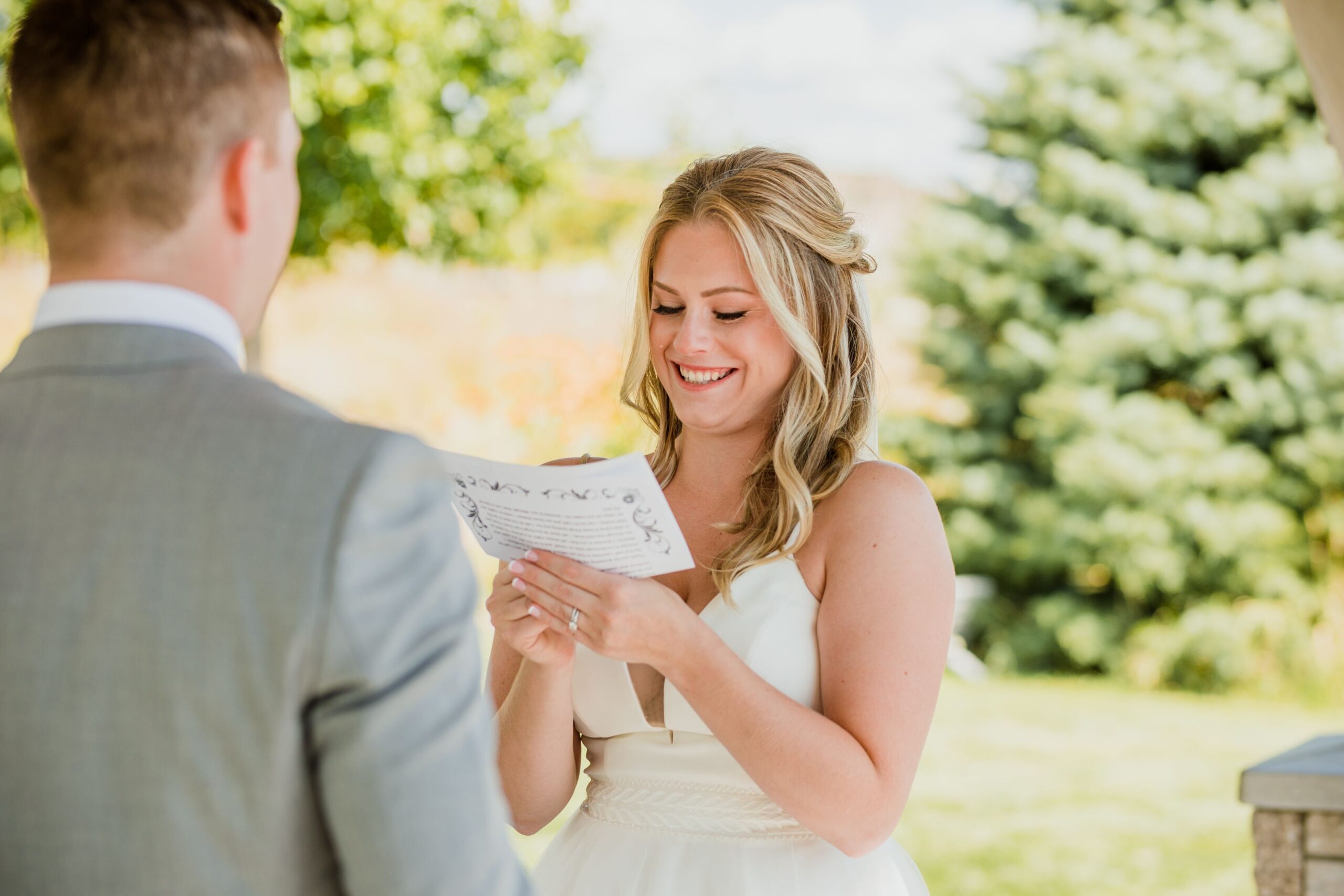
7 – Officiant speech
Next, your wedding officiant may spend some time telling your love story or sharing some words about love and marriage. This part of your ceremony (like all of your wedding) can look like whatever you want it to! You don’t have to go with stuffy, traditional thoughts on marriage. You can ask your officiant to share sentiments more in line with your values – and even include a joke or two!
Check out what a wedding officiants says at a wedding ceremony.
8 – Vows
Once your love story has been told, it’s time to exchange wedding vows. This is our favourite part of your wedding ceremony! You can choose to exchange traditional vows or write your own personal vows. Check out this post for everything you need to know about wedding vows.
Also check out our vow writing course!
9 – Rings
After you’ve exchanged vows, you’ll typically exchange rings. This moment in the ceremony is usually accompanied by a ring statement – a short sentence or two that you say while putting the ring on each other’s finger. Check out this list of ring statements for inspiration!
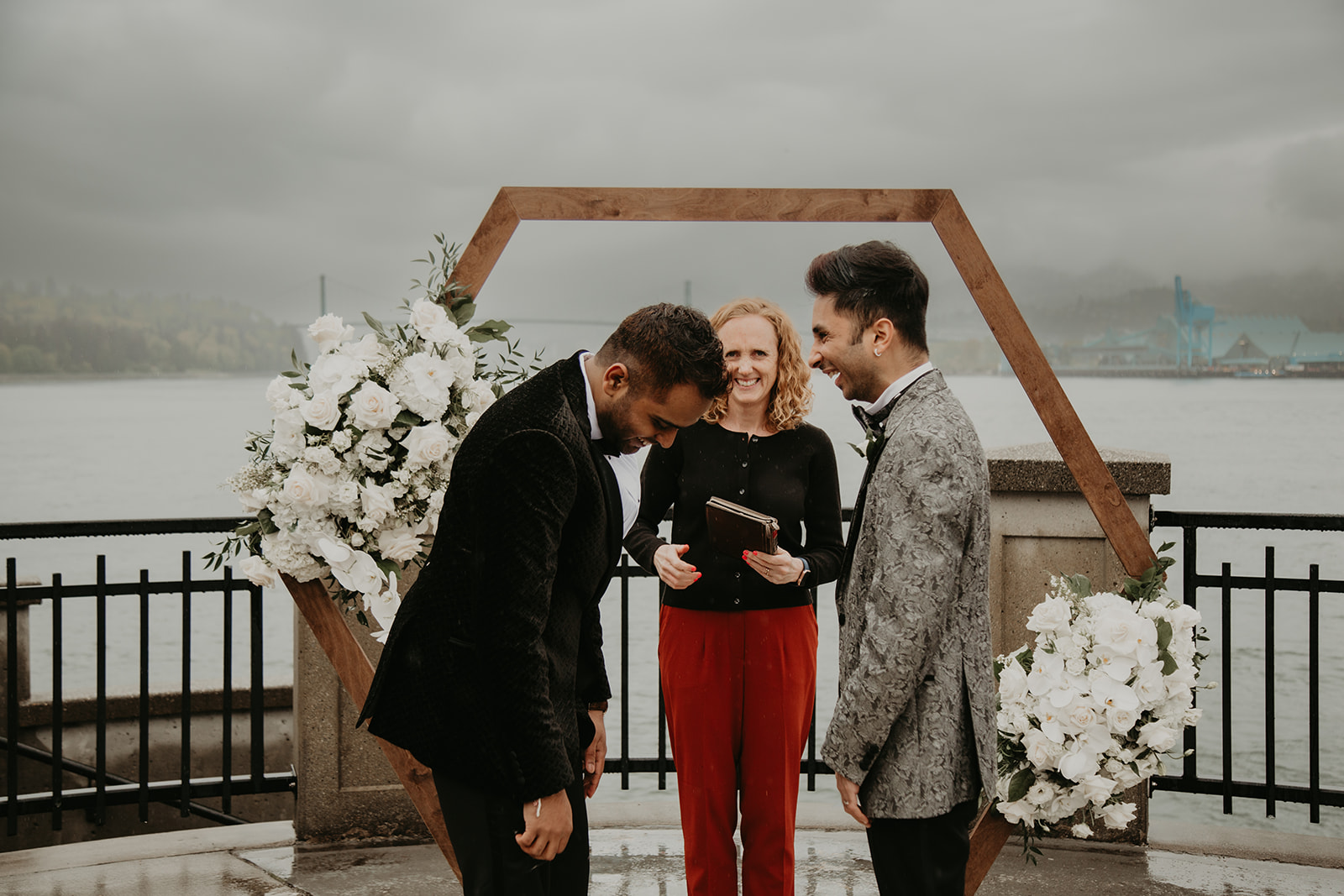
10 – Pronouncement
Finally, we’ve come to the moment when your wedding officiant will pronounce that you are married! Contrary to popular belief, you don’t have to be pronounced as “man and wife.” Check out 15 pronouncements to end your wedding ceremony.
11 – Kiss
Most couples choose to seal their wedding ceremony with a big smooch. Usually, after your officiant pronounces your marriage, they will invite you to mark the moment with a kiss.
12 – Signing the marriage licence
Once the fun part is done, you’ll need to make it legal. At the end of the ceremony, the couple, the officiant and the two witnesses will head to a side table to sign the marriage licence. Your officiant will then mail off the licence to officially register your marriage!
Learn more about marriage licences and certificates in BC, Alberta and Ontario!
13 – Announcement of the couple
The announcement, which can be done before or after you sign your licence, is when your wedding officiant will turn to the crowd and say something like, “For the first time ever, put your hands together for Taylor and Corey, the newlyweds!” The crowd will go wild and you’ll begin recessing back up the aisle.
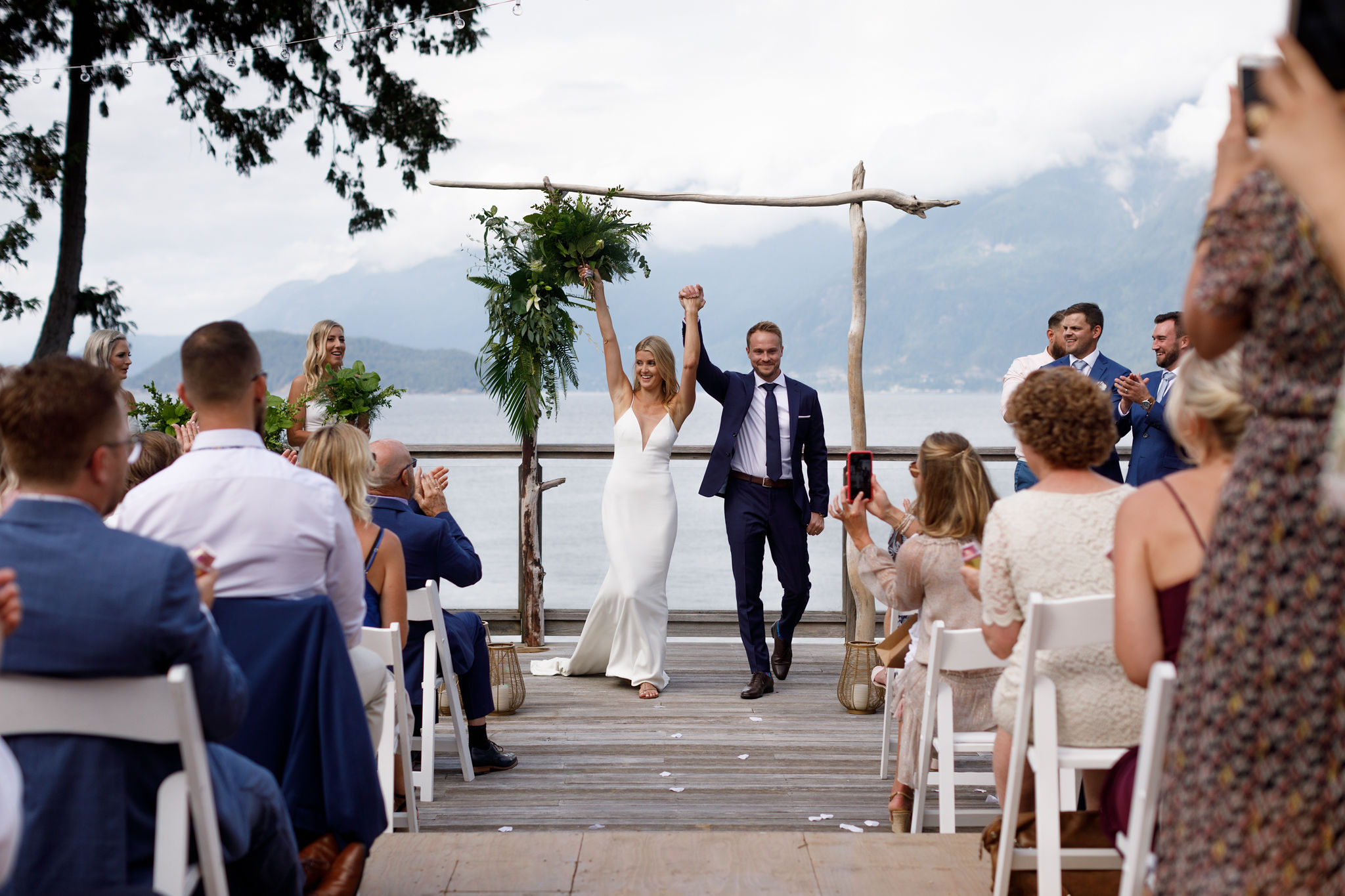
14 – Recessional
The recessional is how you, your brand new spouse and your wedding party make your way back up the aisle and exit your ceremony space. While this seems pretty straight forward, it’s worth practicing at your wedding rehearsal. Worst case scenario, your wedding party and parents get stuck behind all of your guests trying to exit the space, making it hard to wrangle them for photos!
15 – The plan for after the ceremony
Lastly, you want your wedding ceremony outline to cover what happens as soon as your ceremony is finished. Answer questions such as: Where do guests go? Where does the wedding party go? What time do you need to be at your next event? Who is responsible for taking down any ceremony decor? What needs to be picked up from the ceremony space?
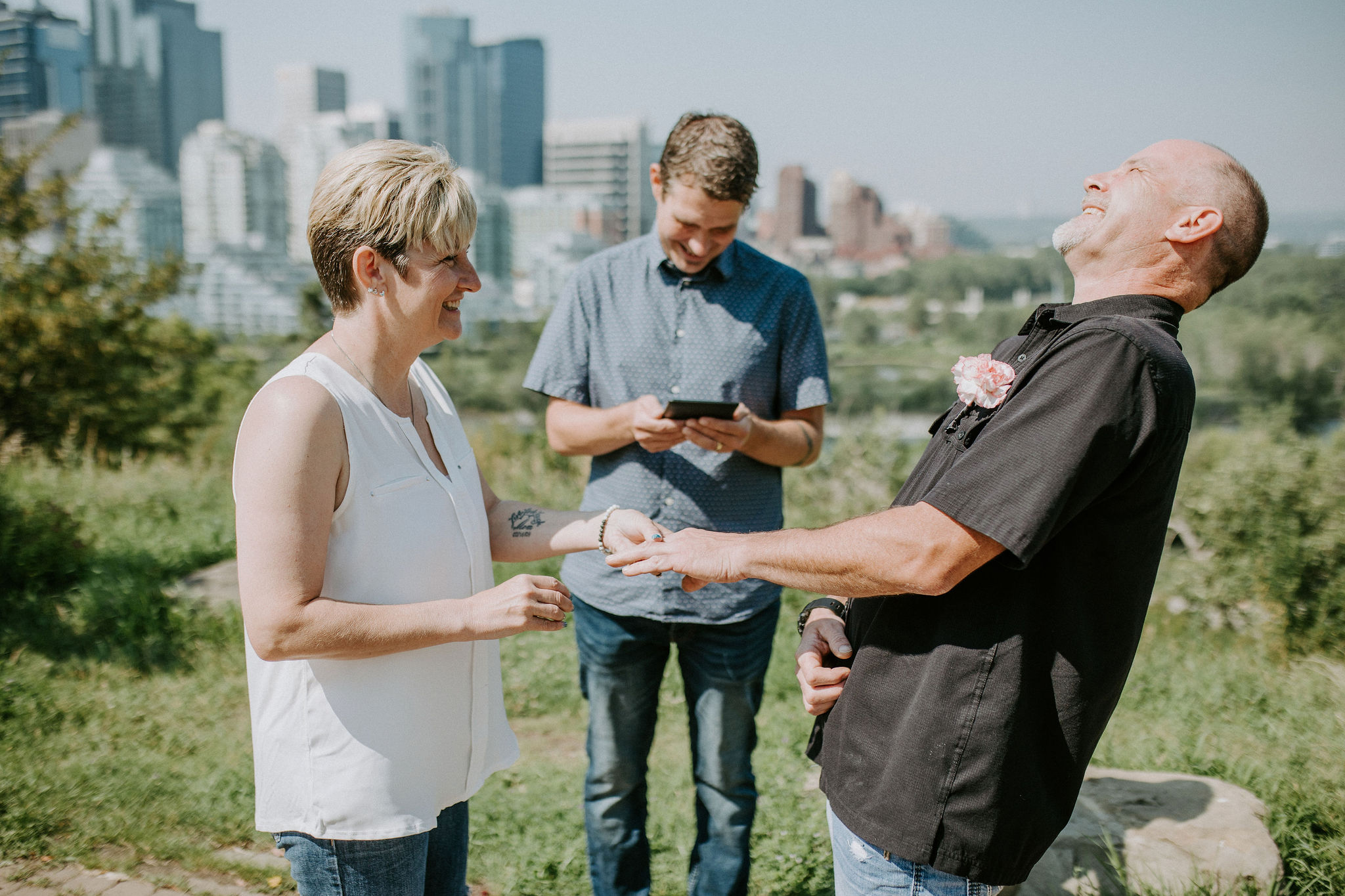
Can we have a funny wedding ceremony script?
Absolutely! There’s no reason why your wedding ceremony needs to be serious and sombre if that’s not true to you. You can absolutely have fun with your wedding ceremony, include jokes and give your guests (and yourselves) lots of moments to laugh and smile. An experienced wedding officiant (like yours truly!) will be able to create a ceremony script that is light and funny, while still ensuring your ceremony is meaningful.
Can we have a simple wedding ceremony script?
For sure! You don’t need to include all of the elements above. You can create a simple wedding ceremony outline with fewer things, making for a shorter and simpler ceremony. Consider ditching the wedding party, not having any readings, and combining your vows, declaration of intent and ring statement into one.
Can we have a non religious wedding ceremony script?
Yes! You can have a non religious wedding ceremony. Unless you and your partner are religious, or are getting married within a religious institution, you are not required to include religion, prayers or blessings in your wedding ceremony. You can have a secular (non-religious) or non-denominational wedding ceremony that is still full of things that are meaningful to you two.
Should a vow renewal ceremony outline be different?
A vow renewal is a wedding ceremony between two people who are already married but want to renew and celebrate their commitment to one another. Therefore, your vow renewal ceremony outline will skip out on the legal parts, such as signing the marriage licence, since you’re already legally wed.
Vow renewal ceremonies are generally less traditional than typical marriage ceremonies, meaning you can get more creative with your ceremony script. For example, you may choose to spend more time on your vows or gift each other with new wedding rings. You may also invite more people to do readings who can reflect on your years of marriage.
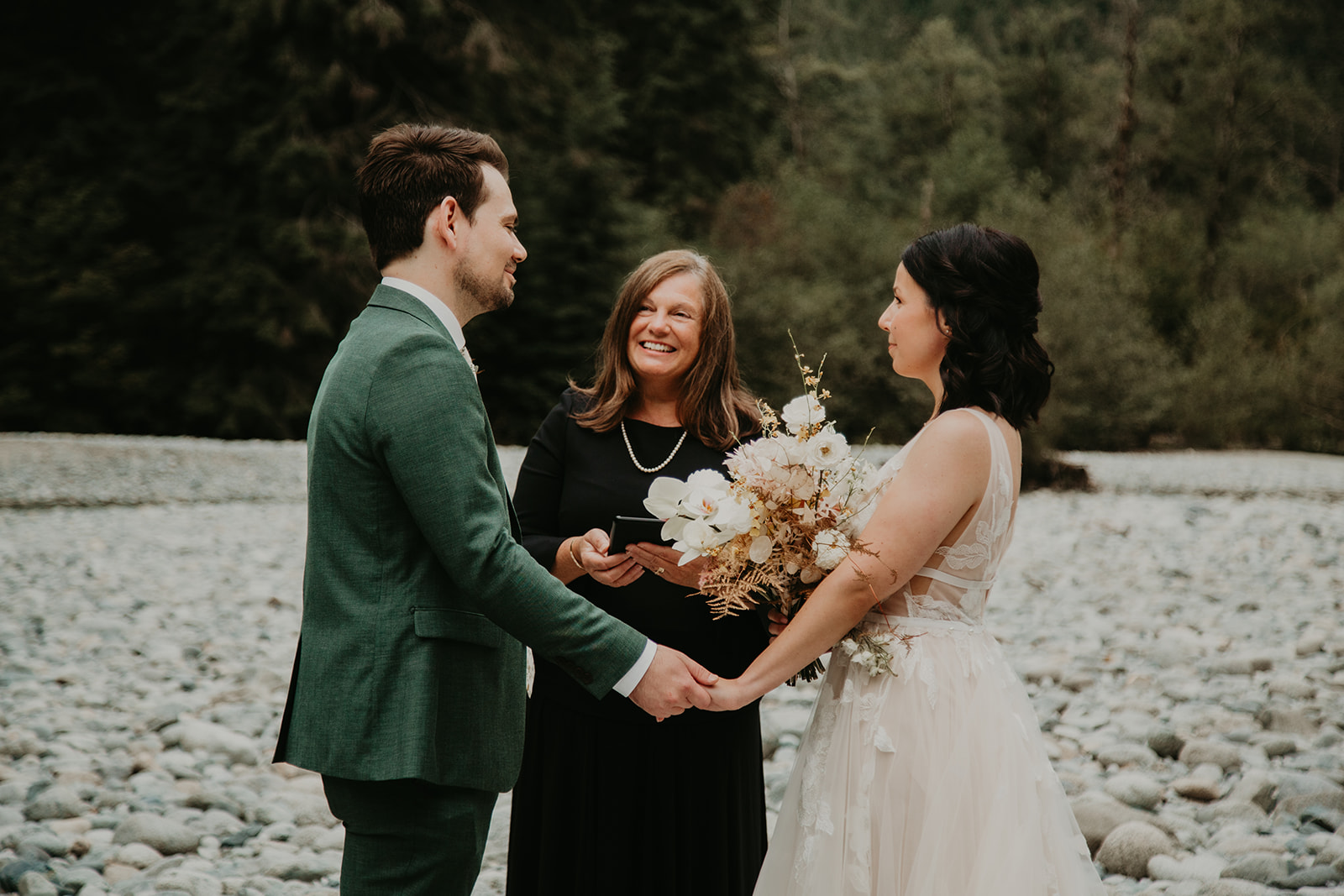
Ready to put together your wedding ceremony outline?
With these tips, you should be well on your way to designing the perfect marriage ceremony! If you’re looking for an experienced wedding officiant to put together a custom script all about your love, check out our packages and get in touch to book your officiant!
